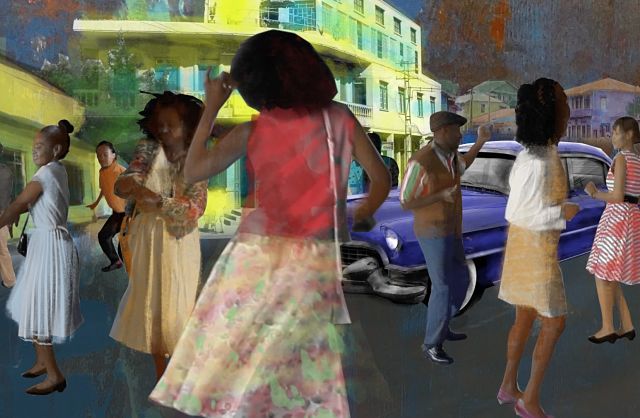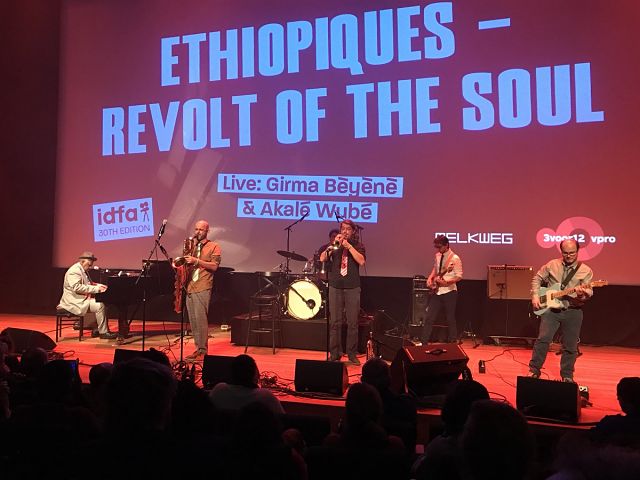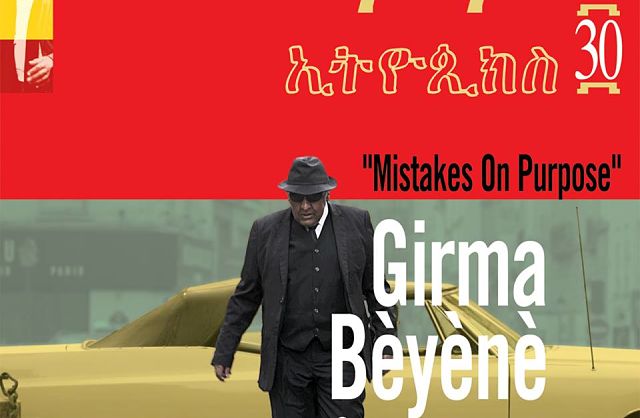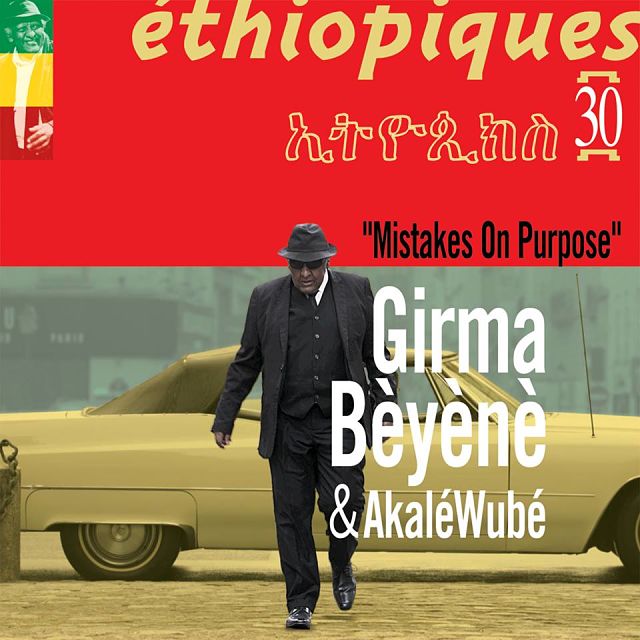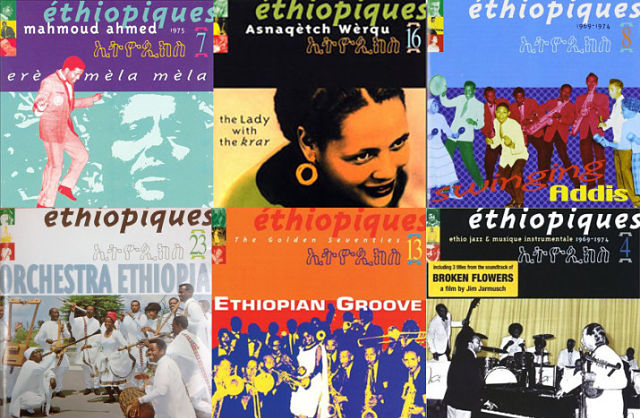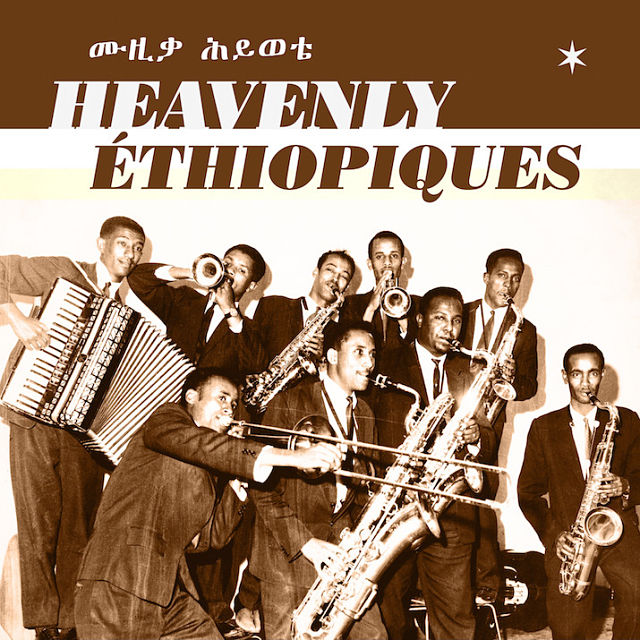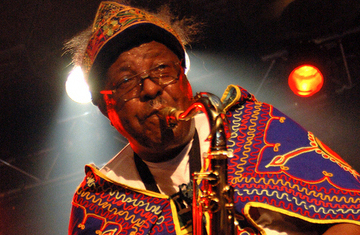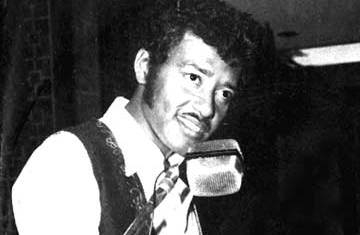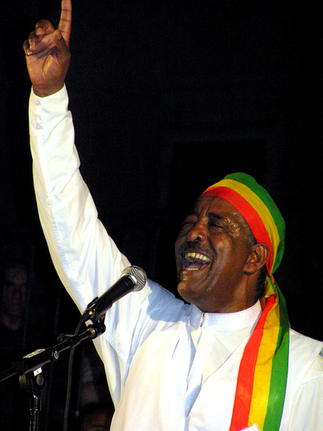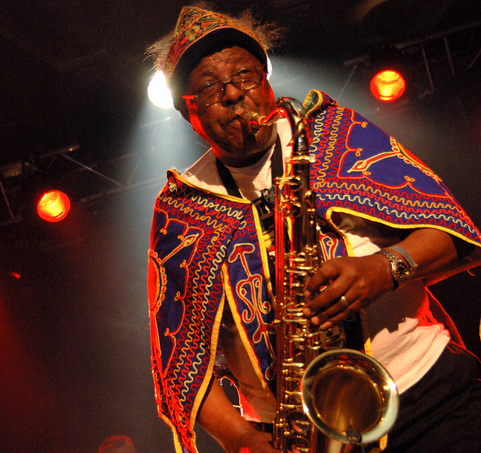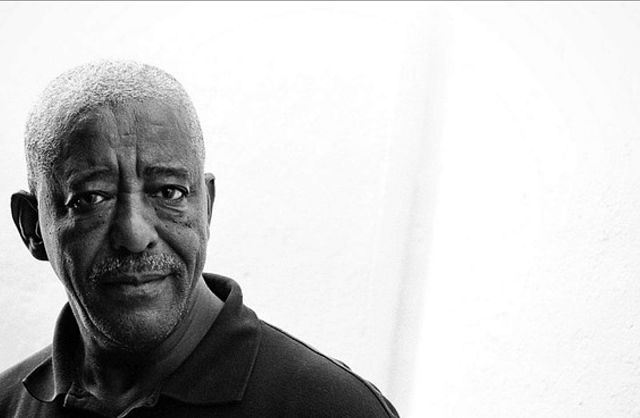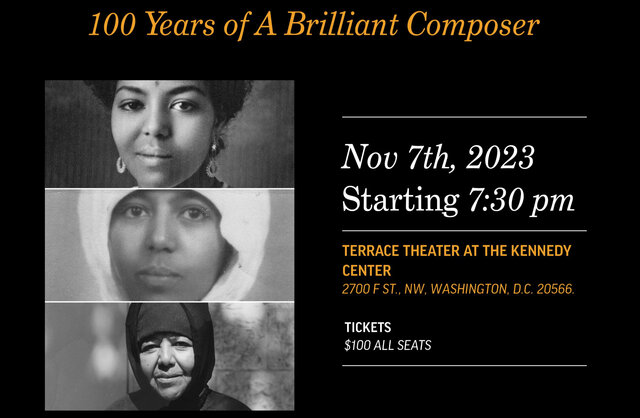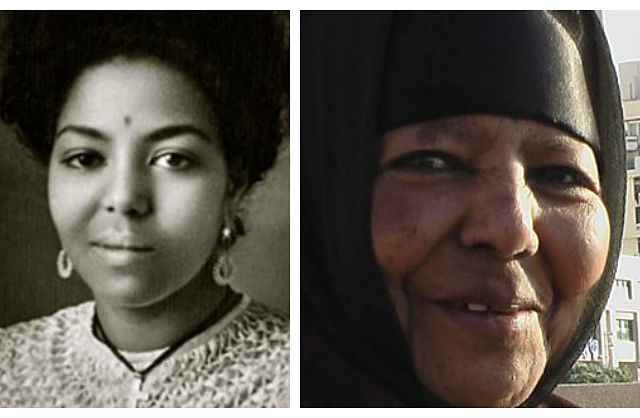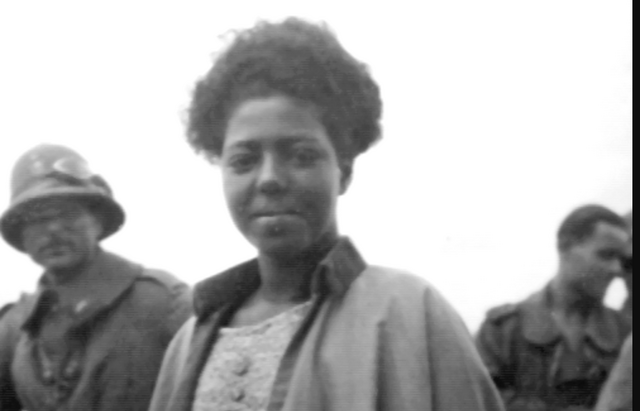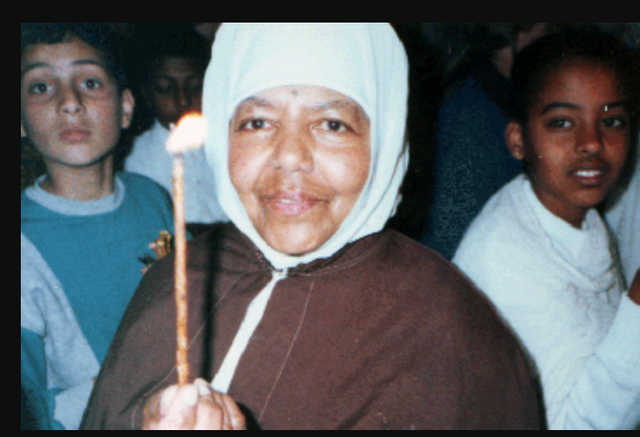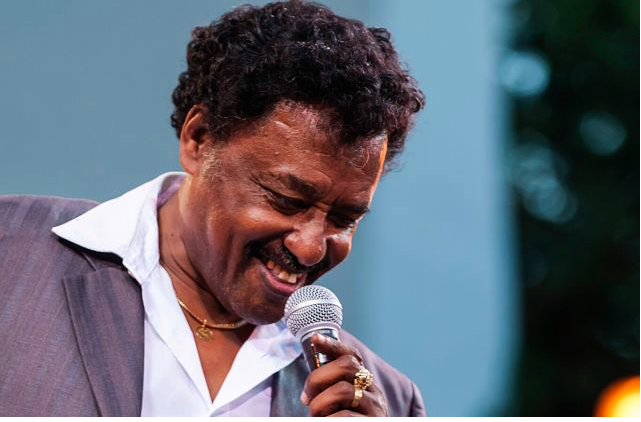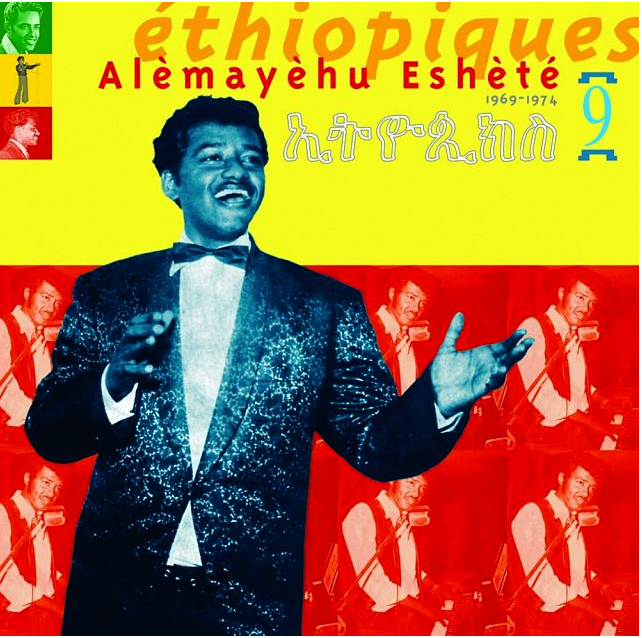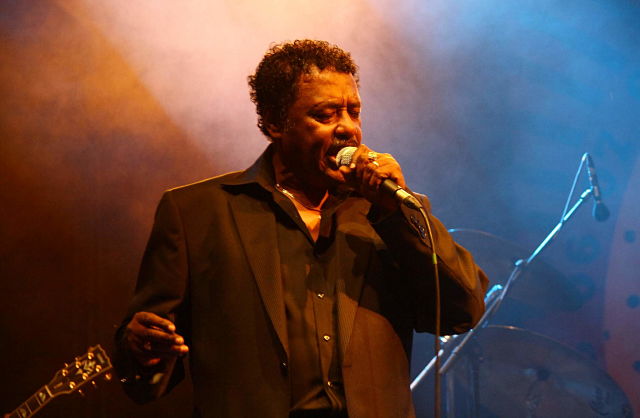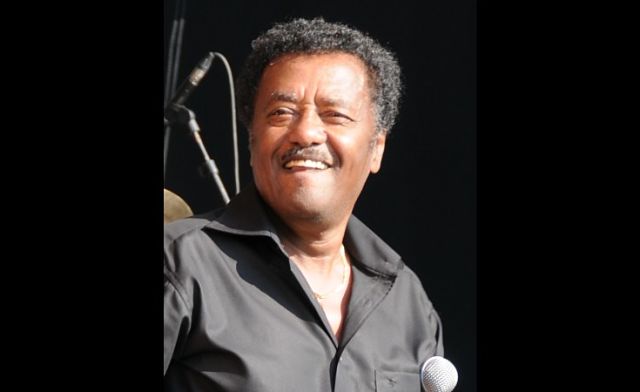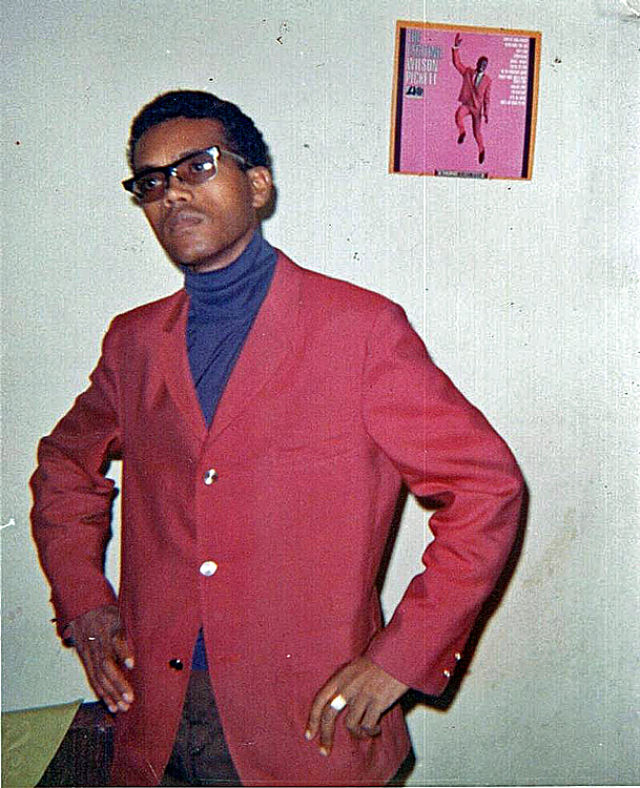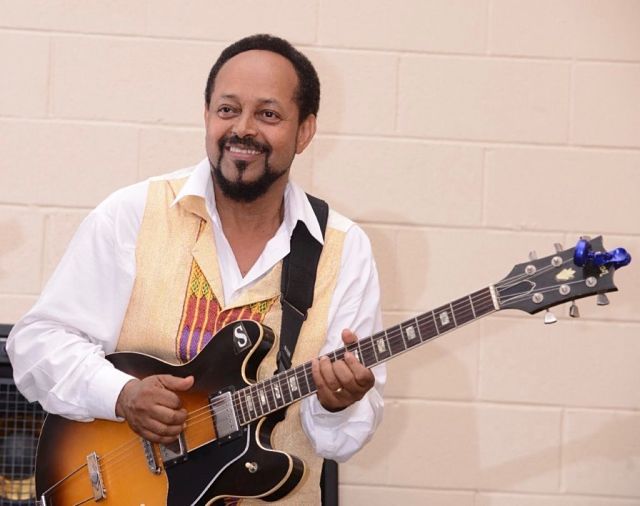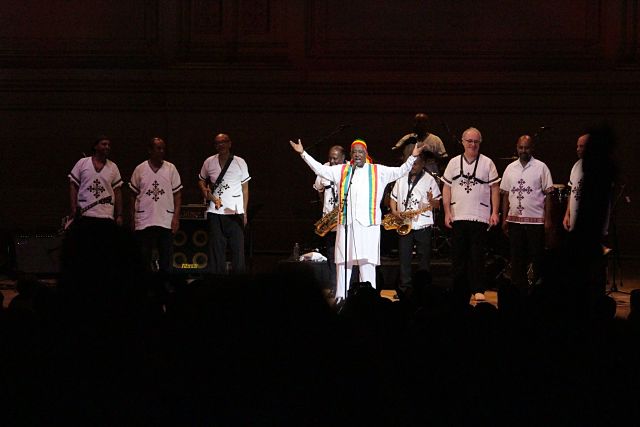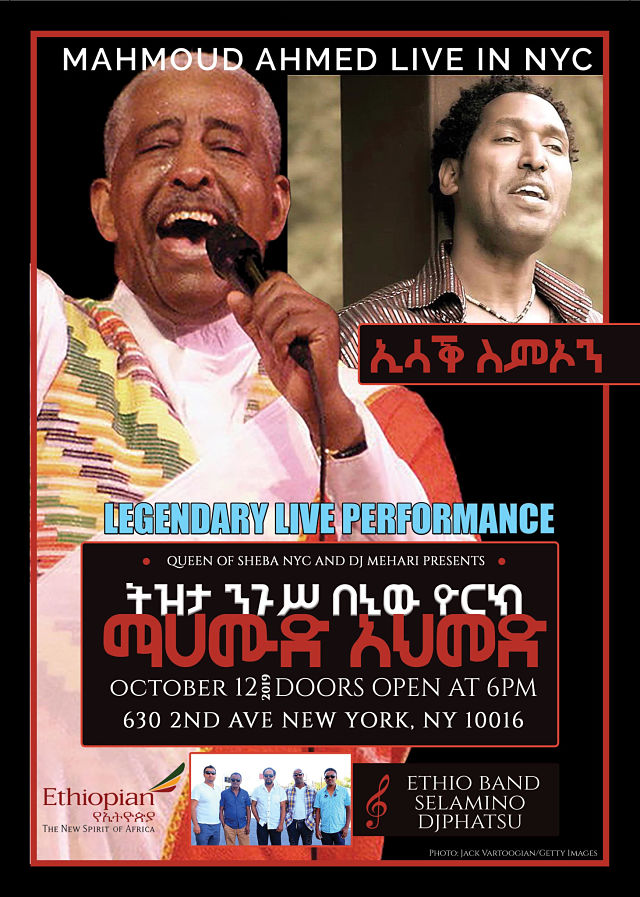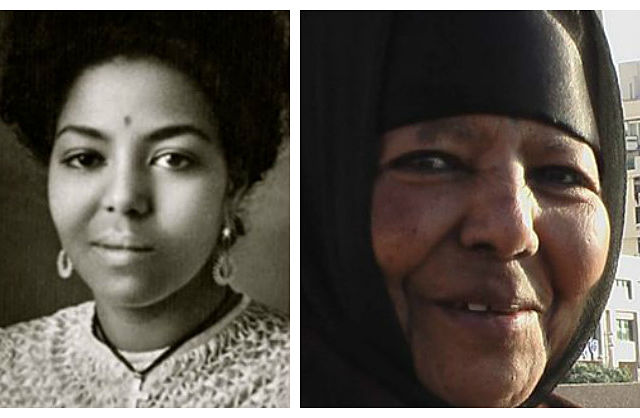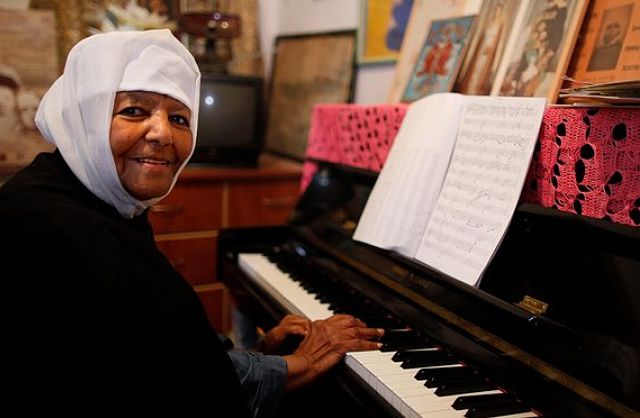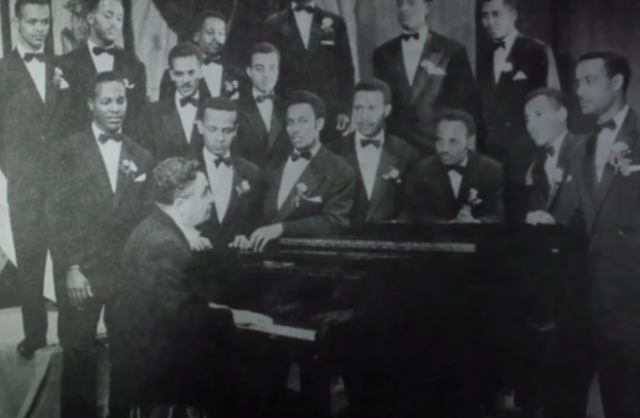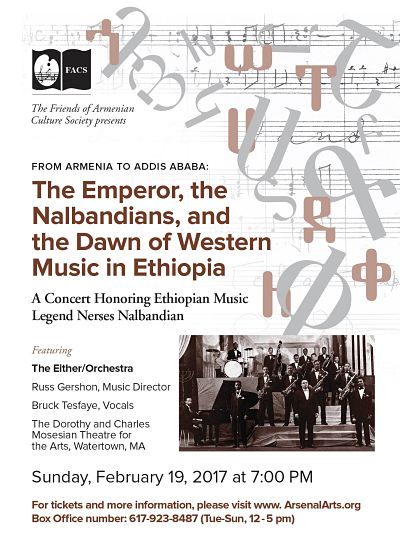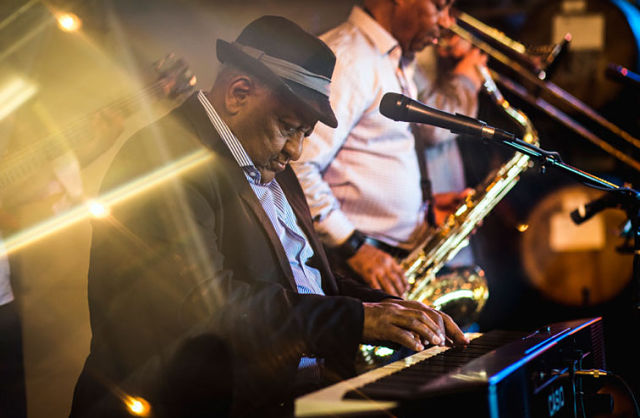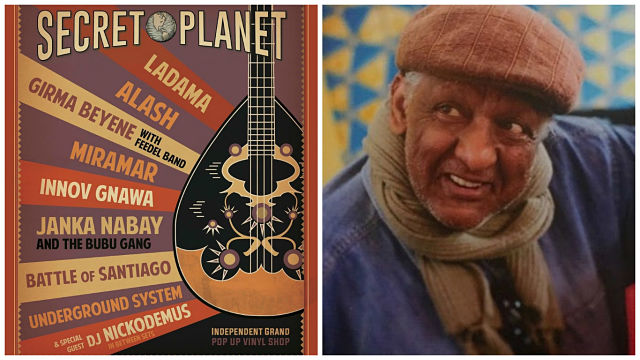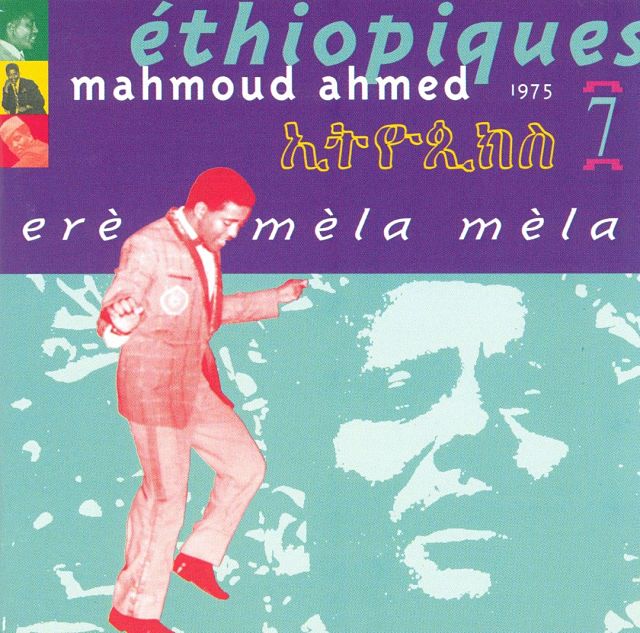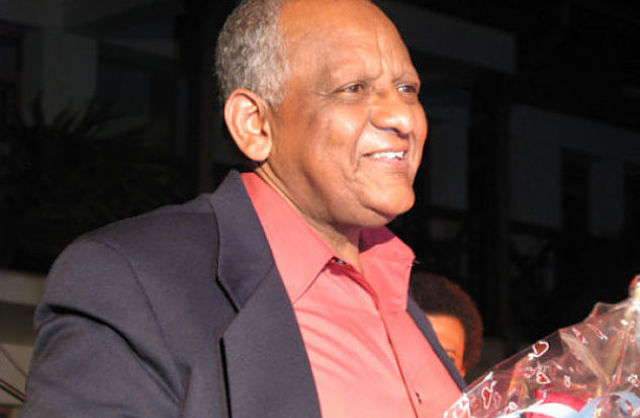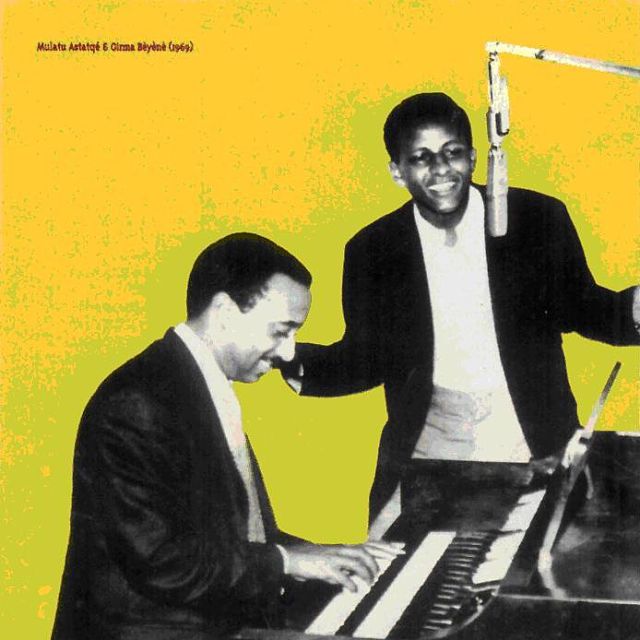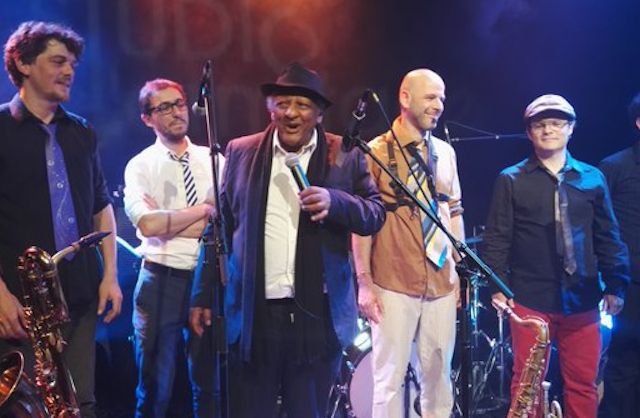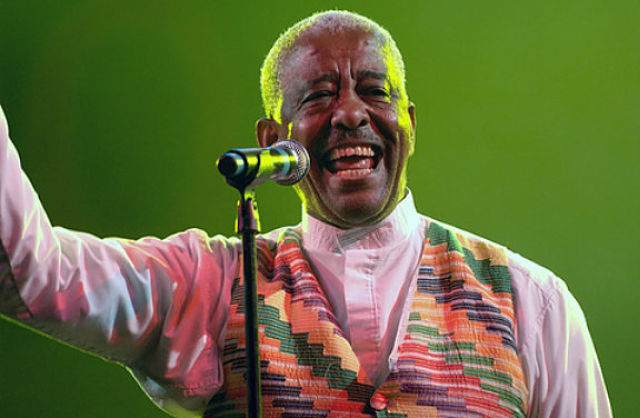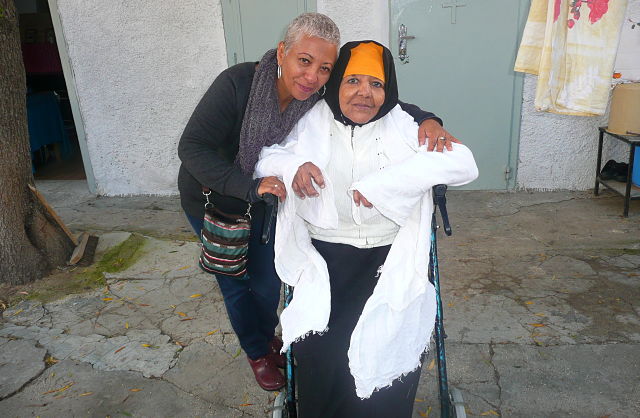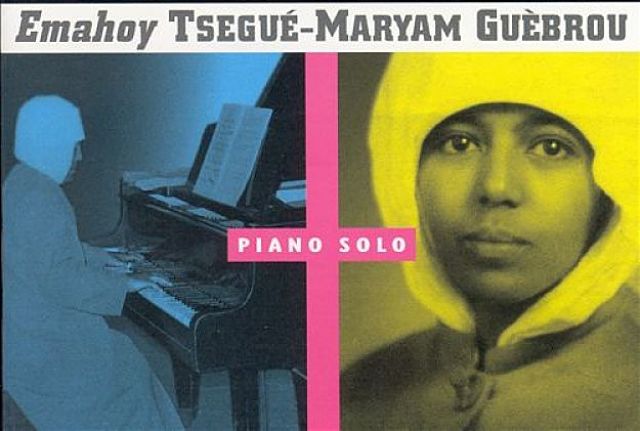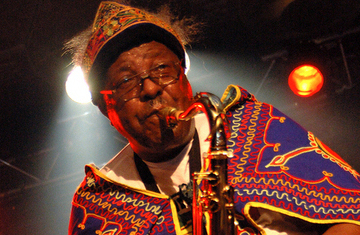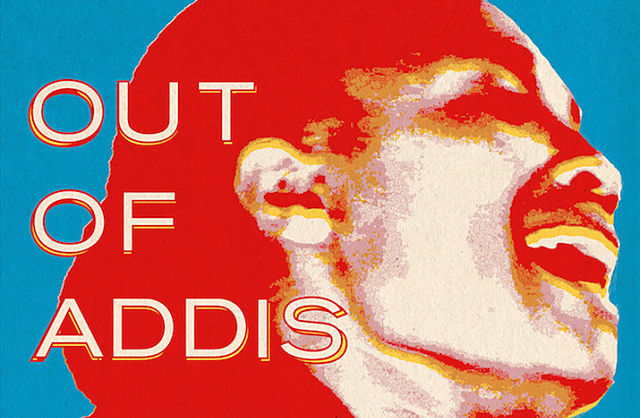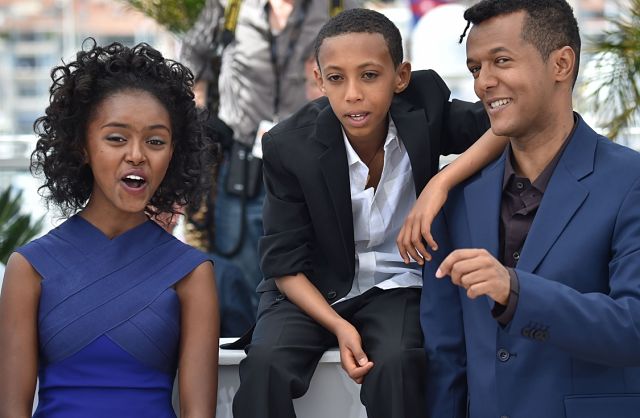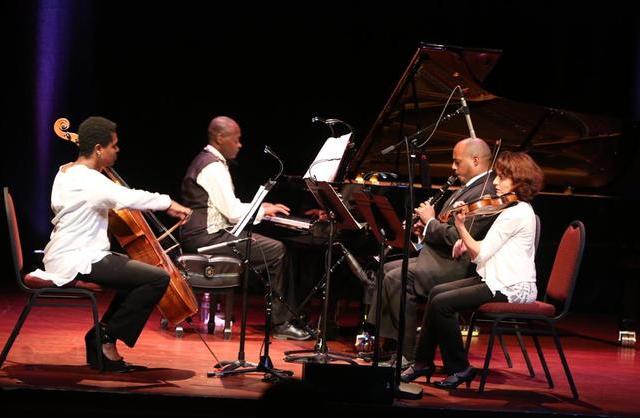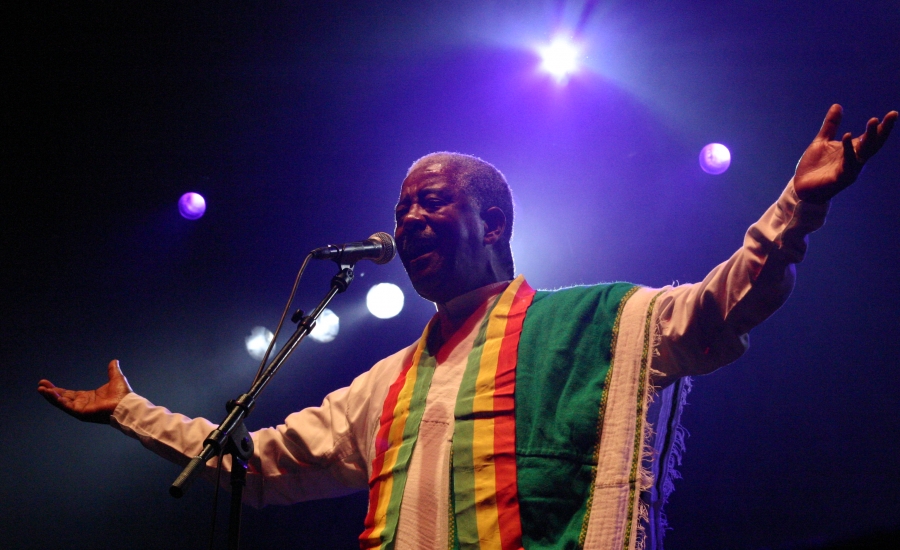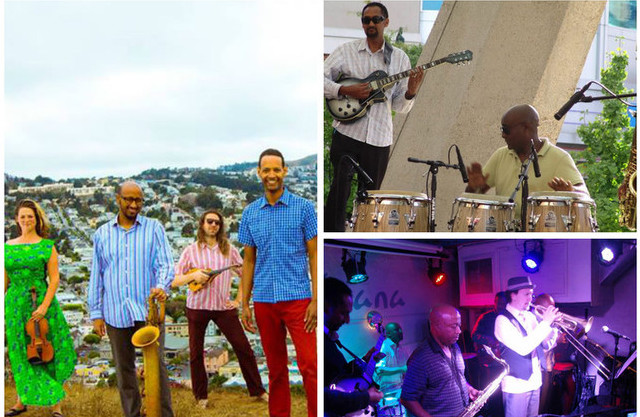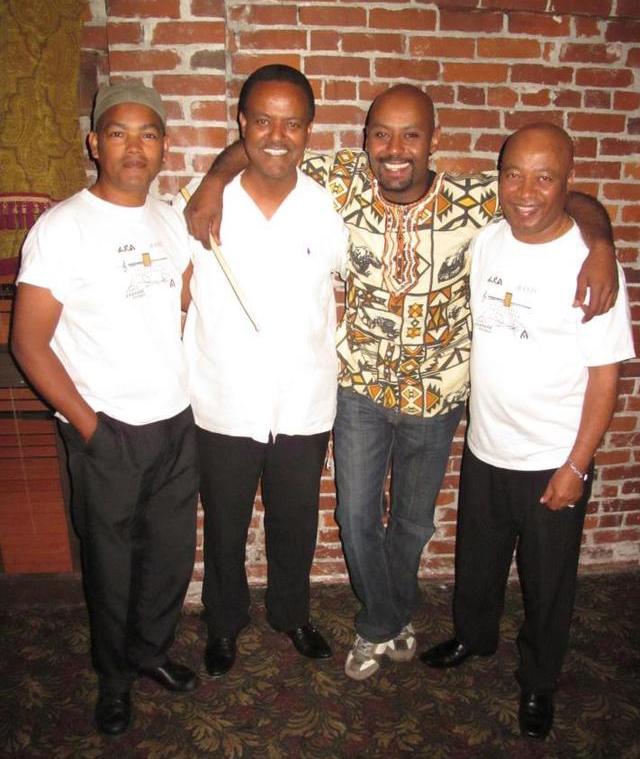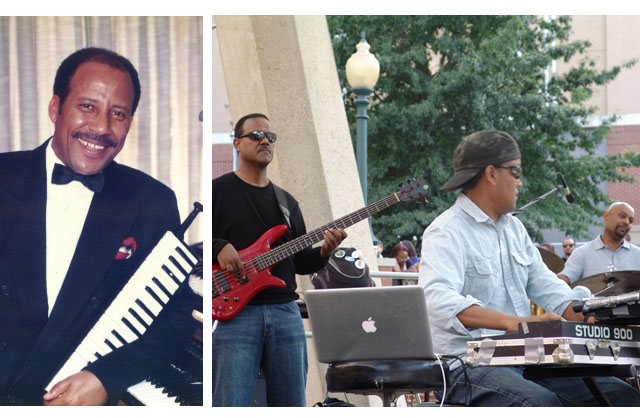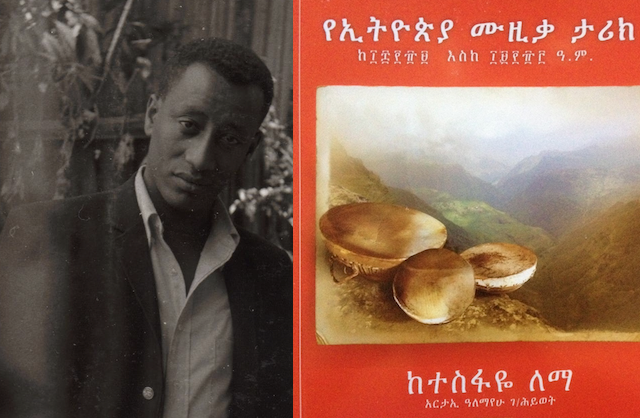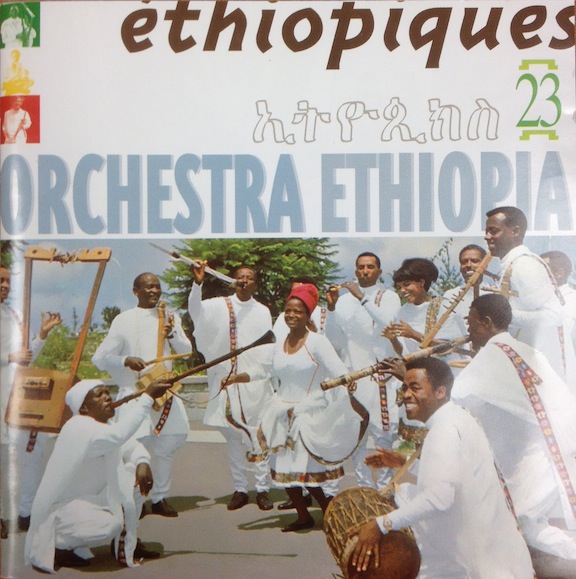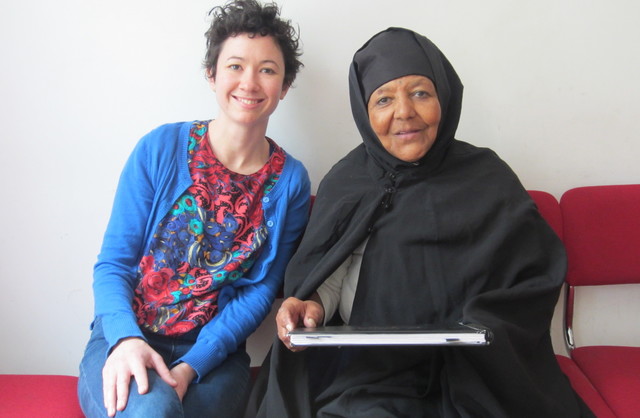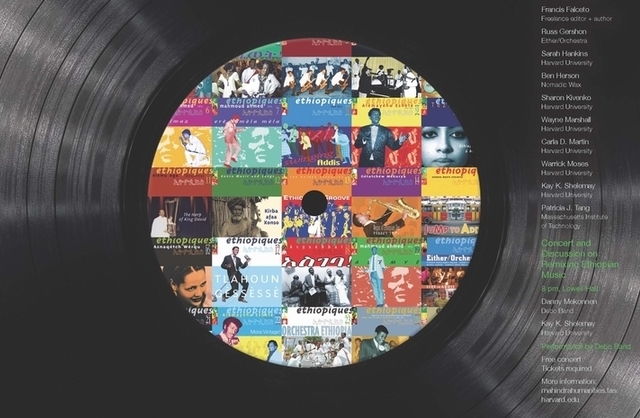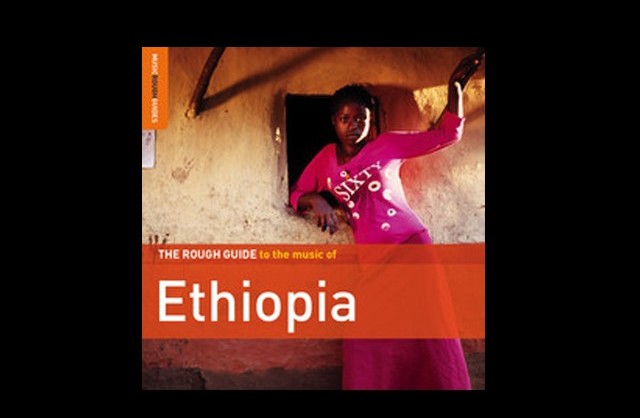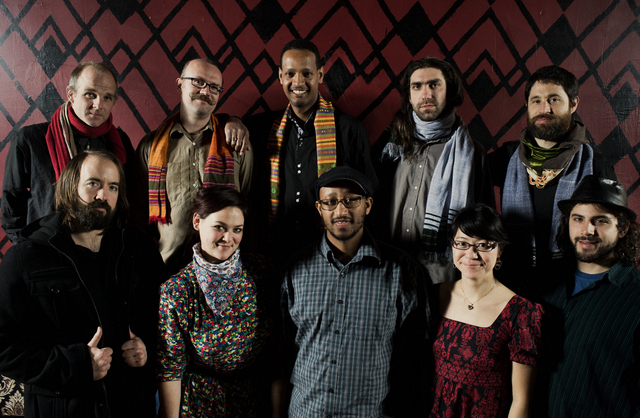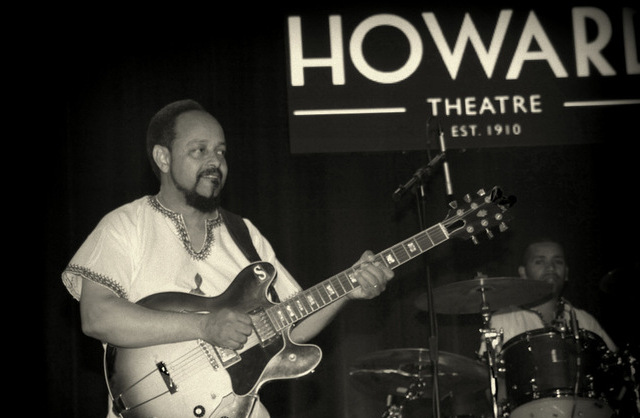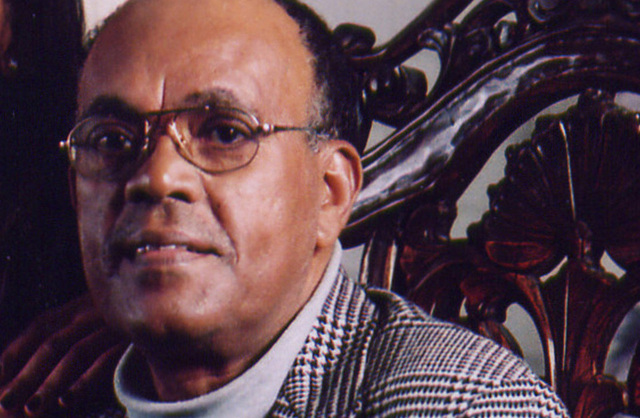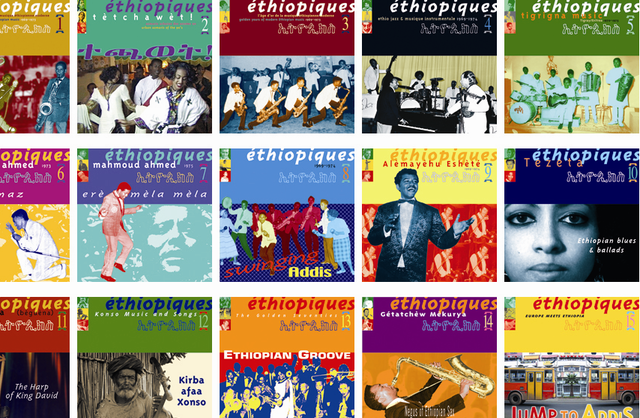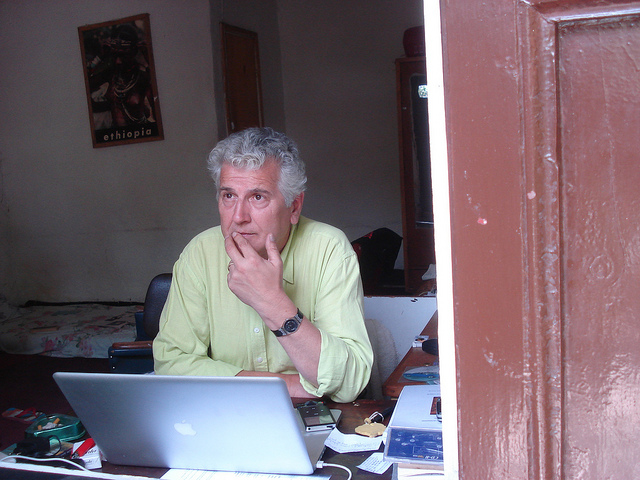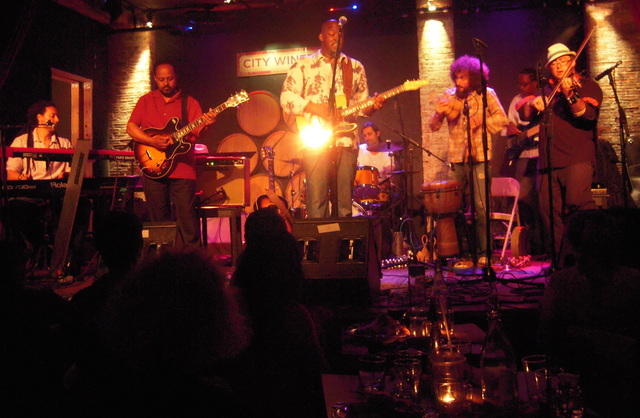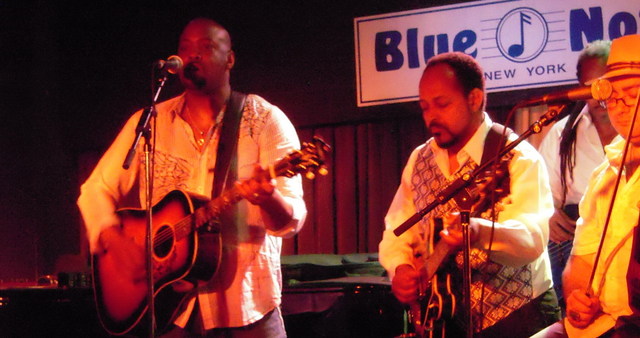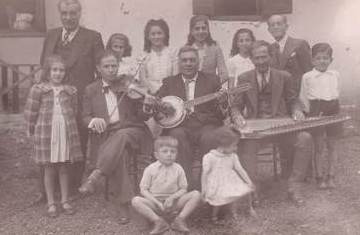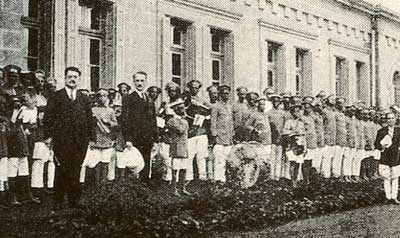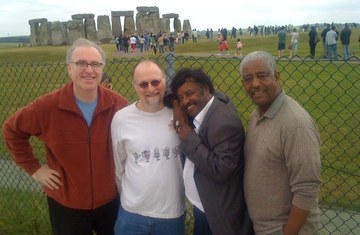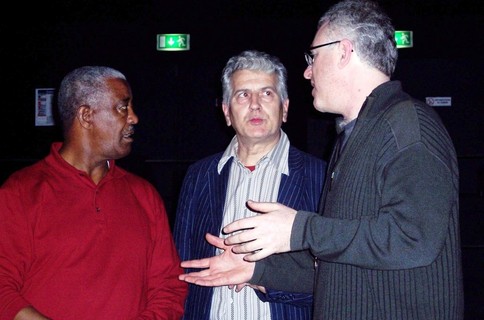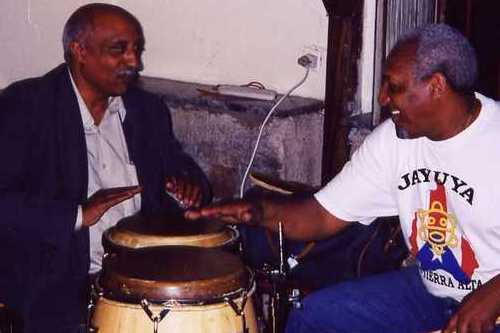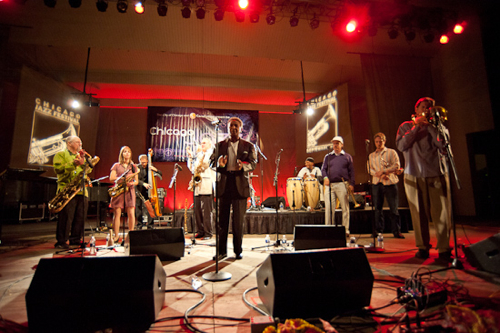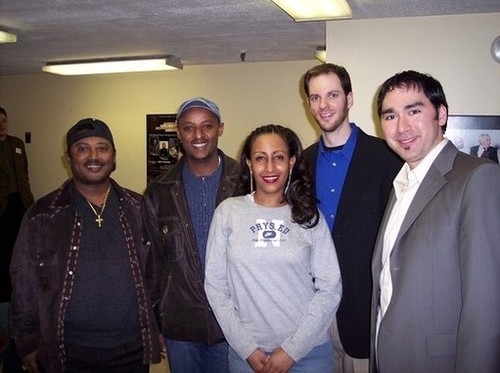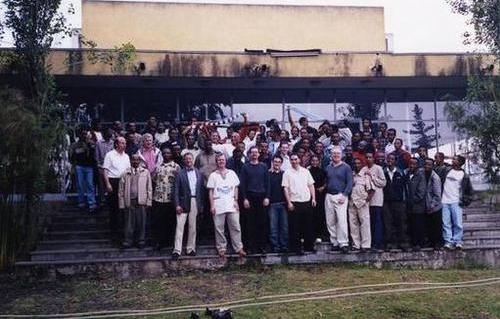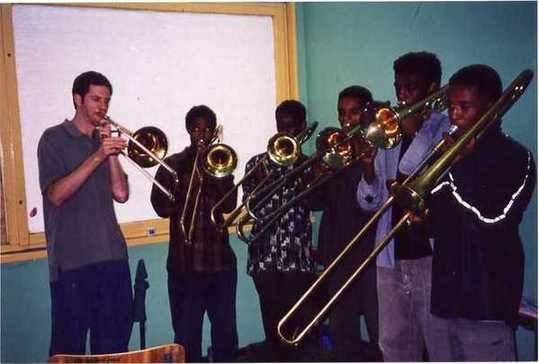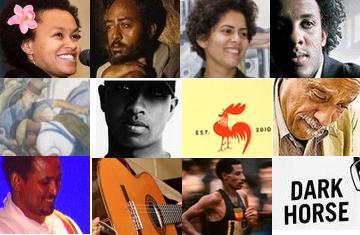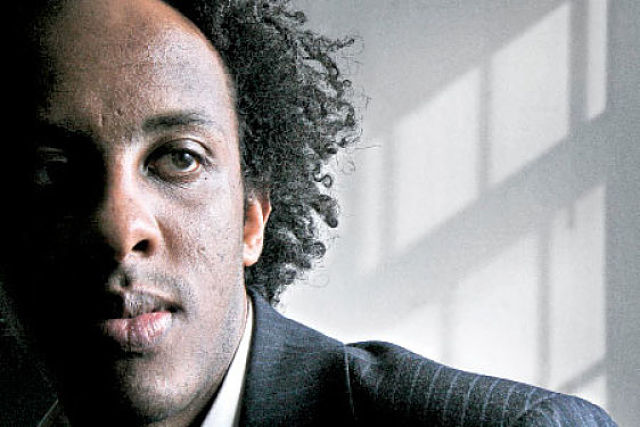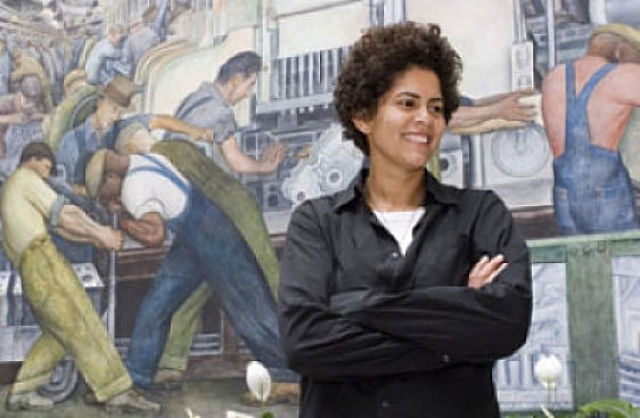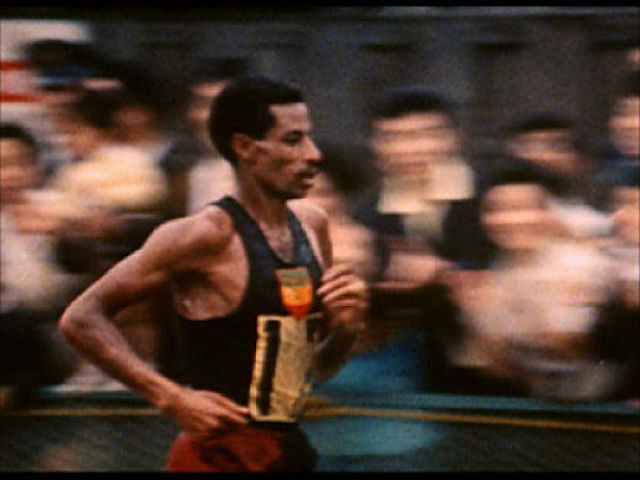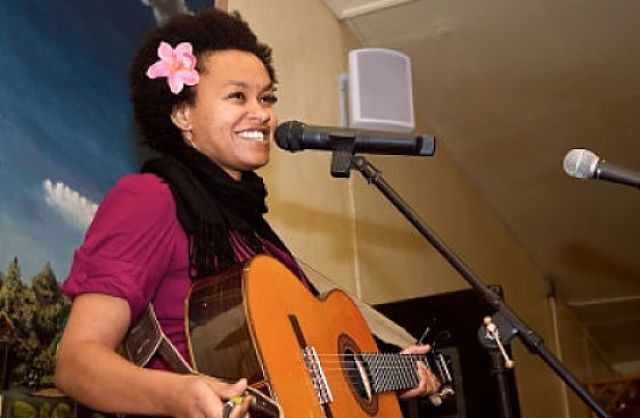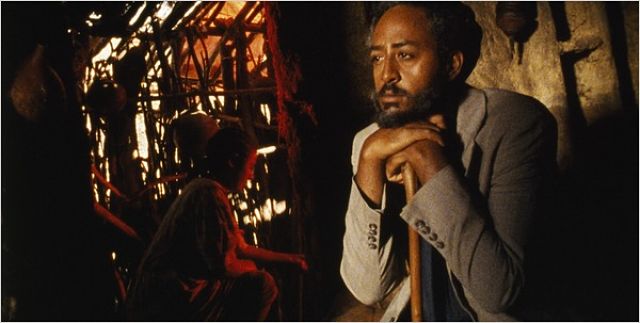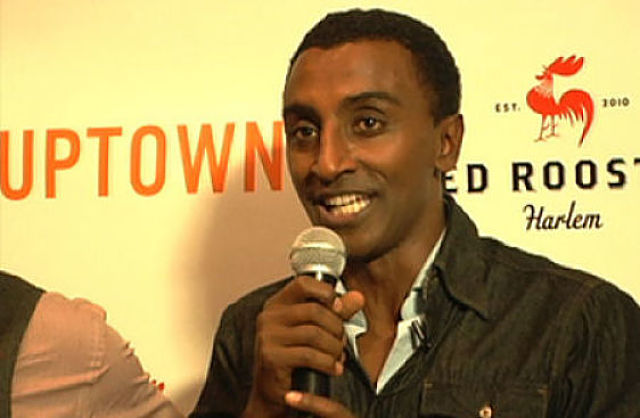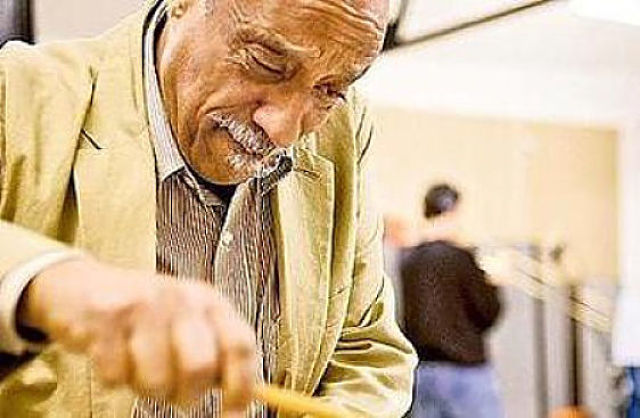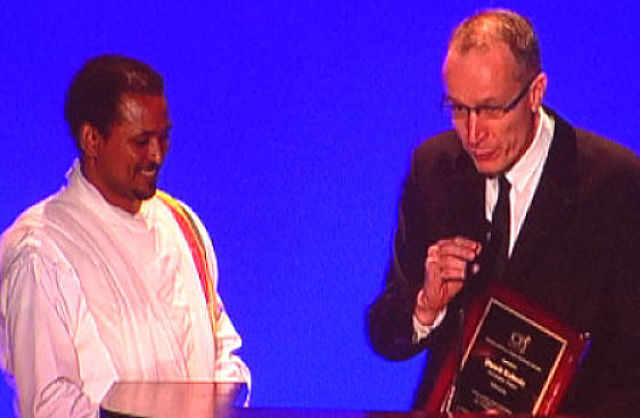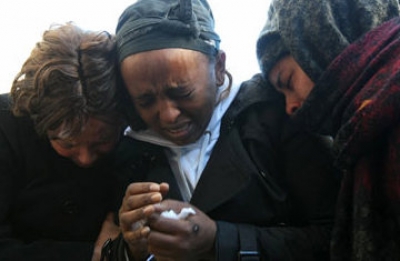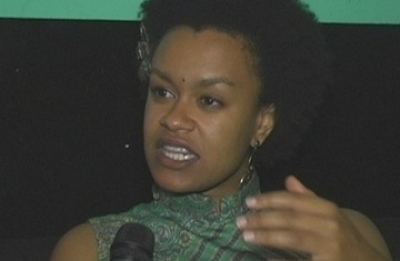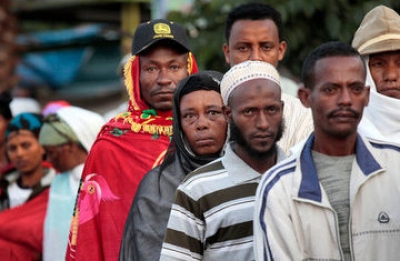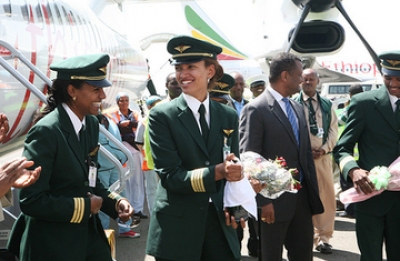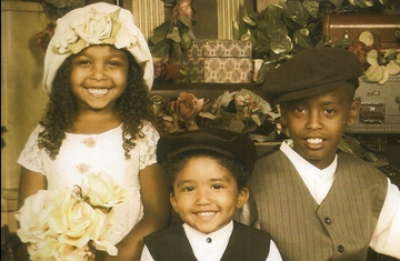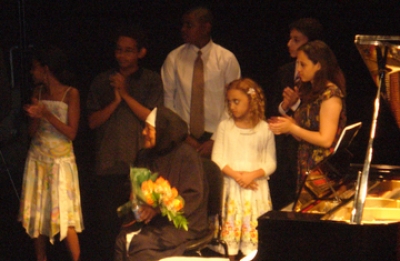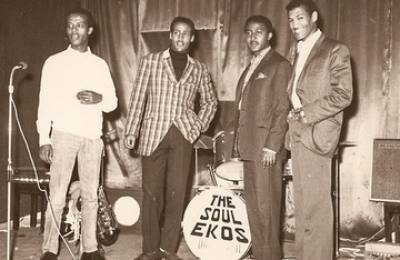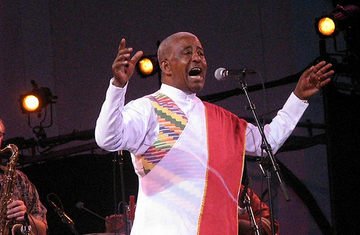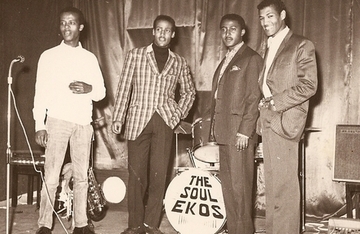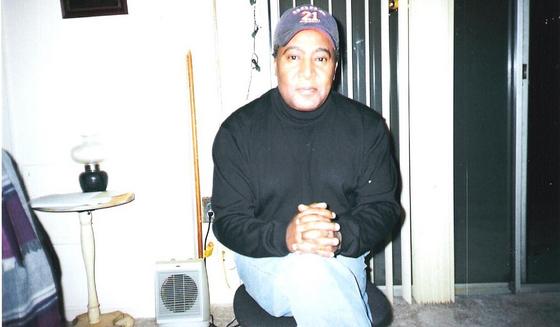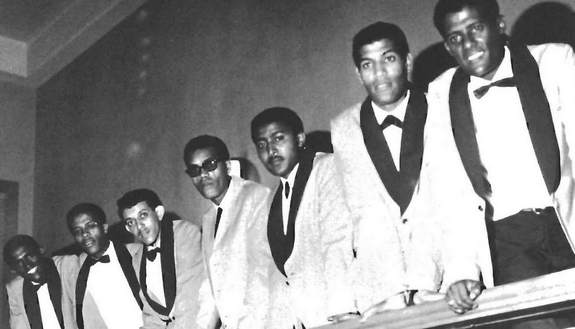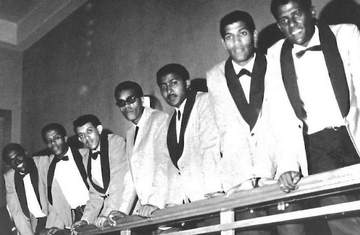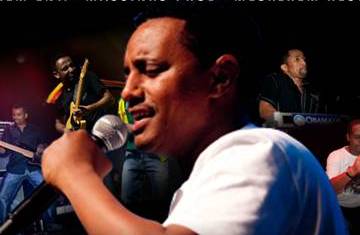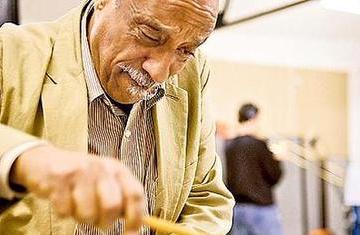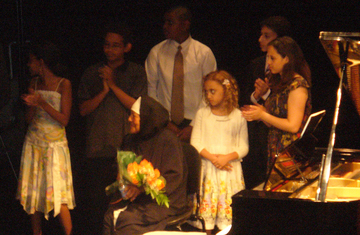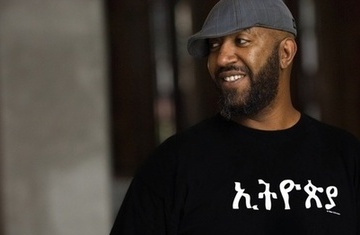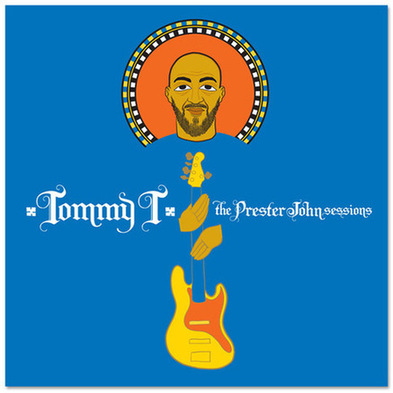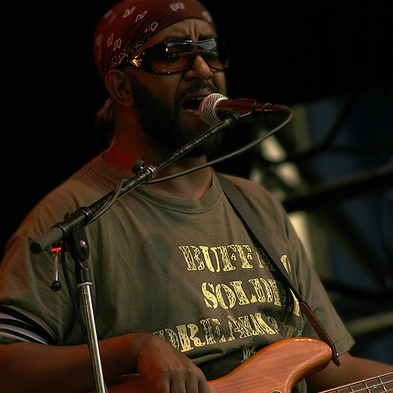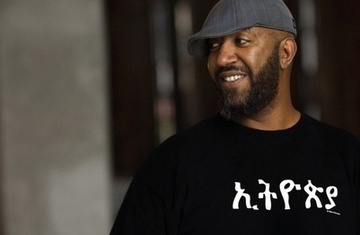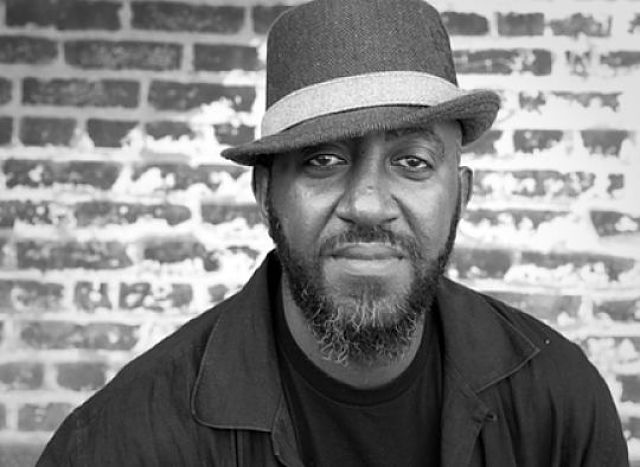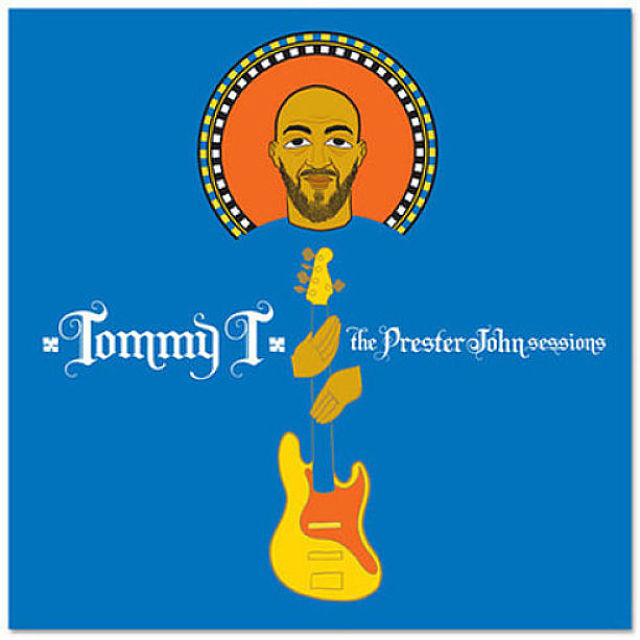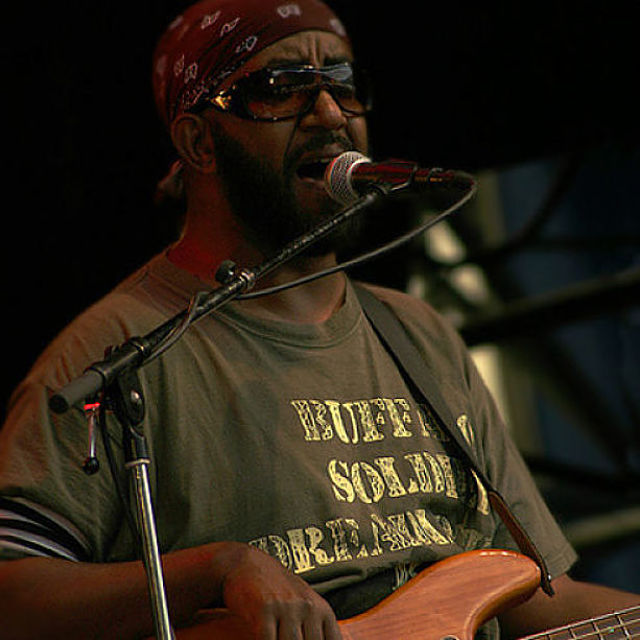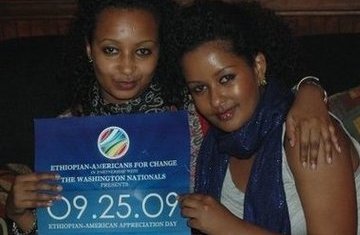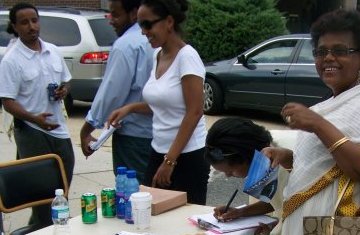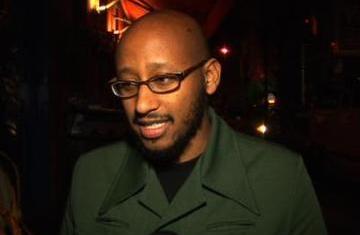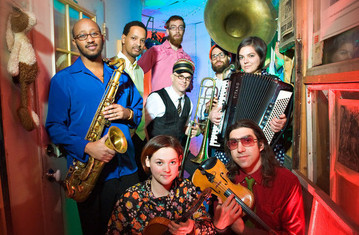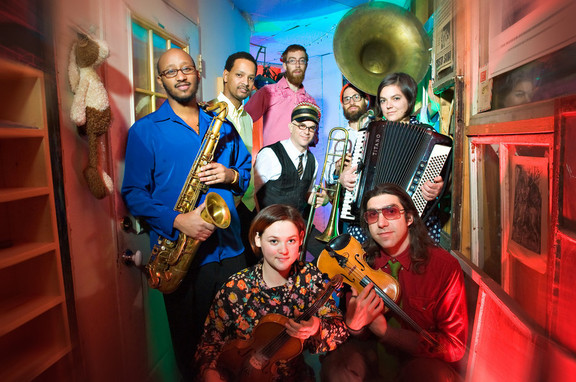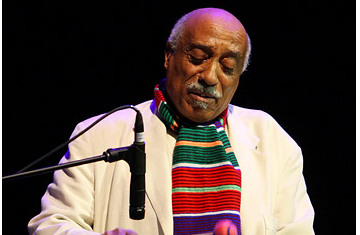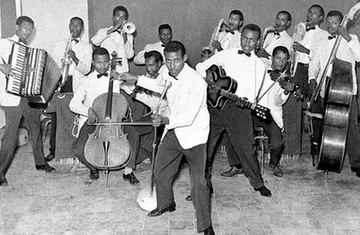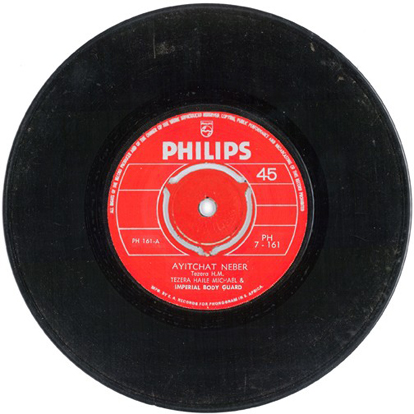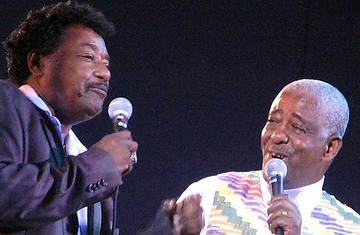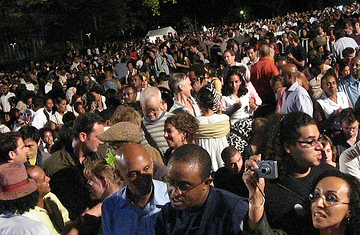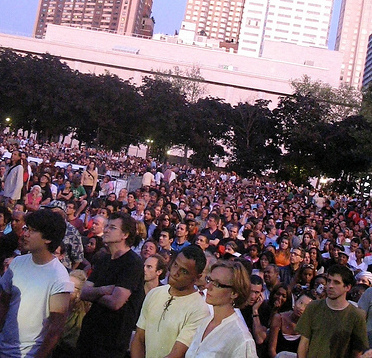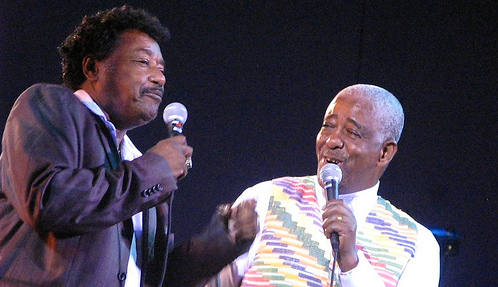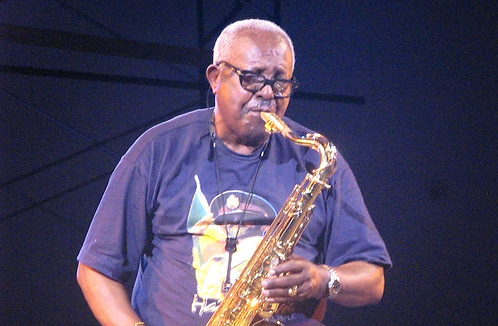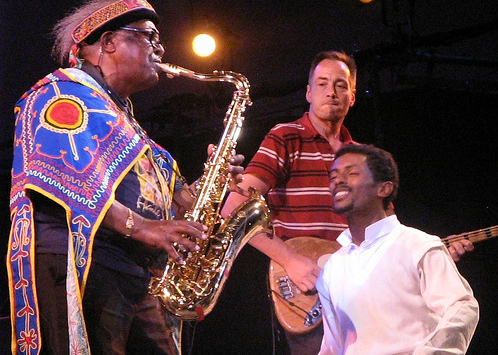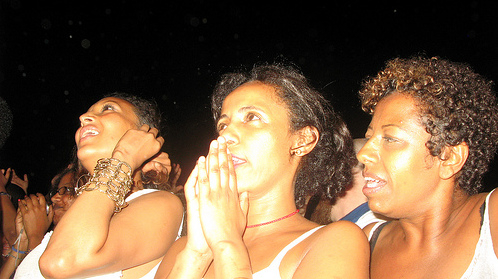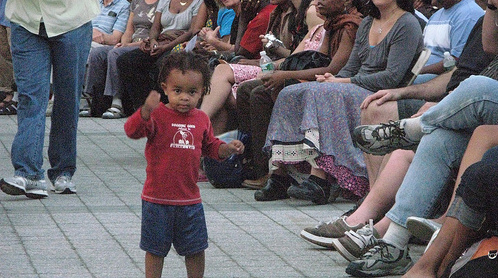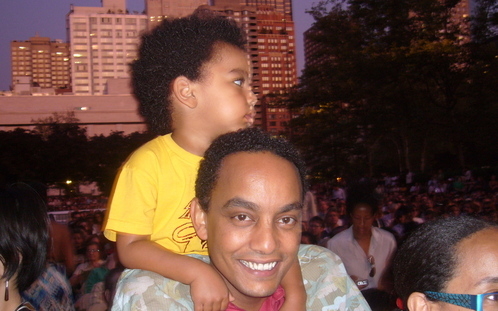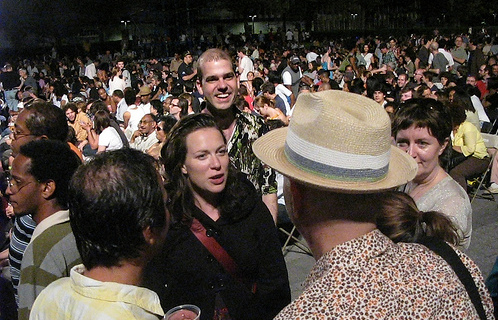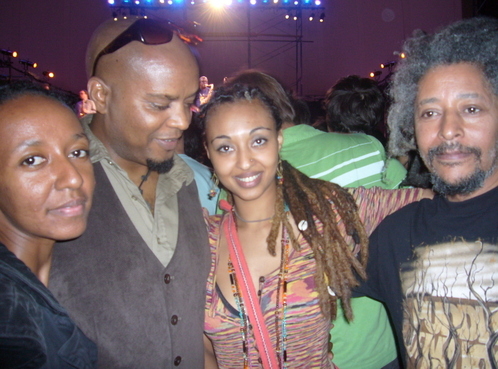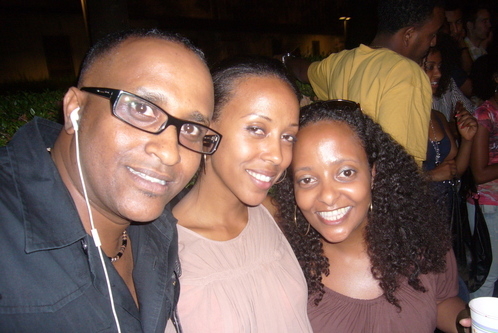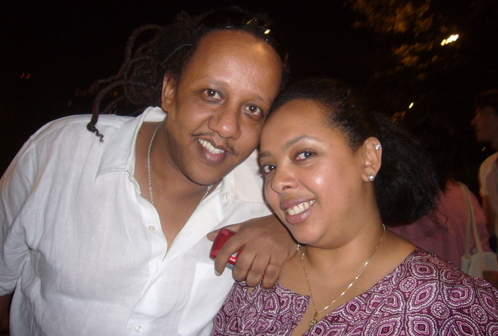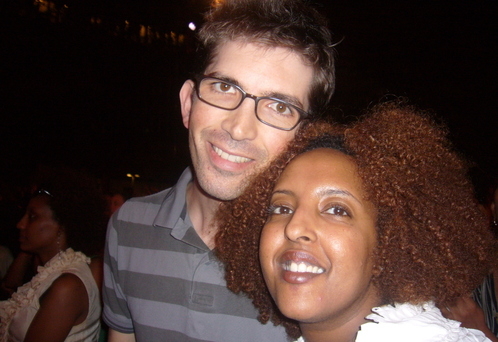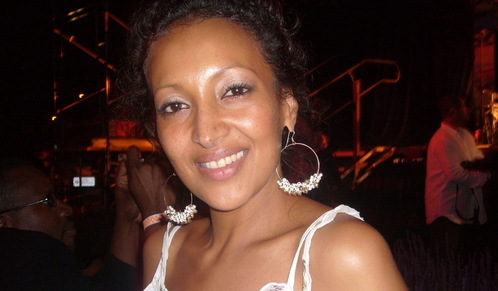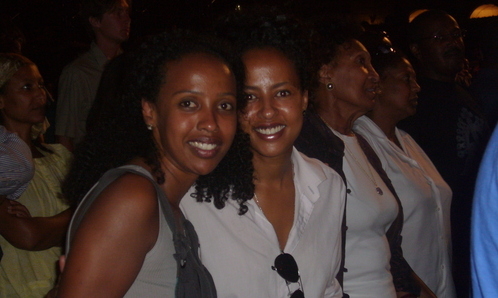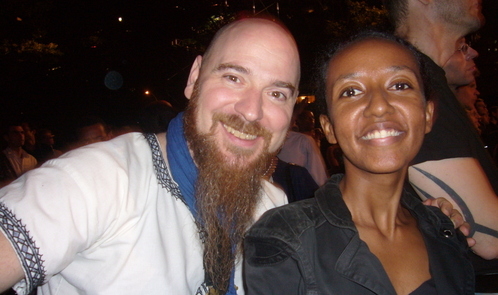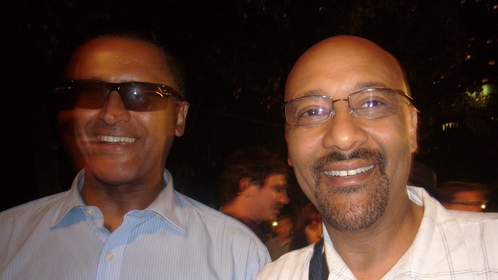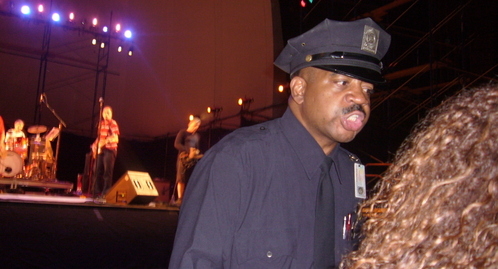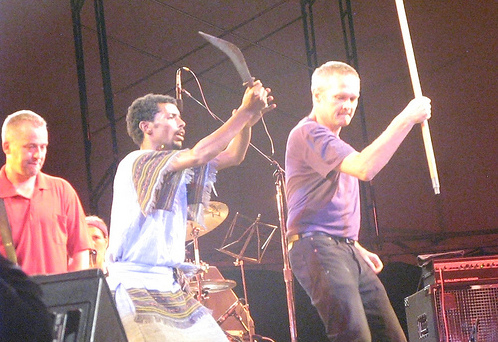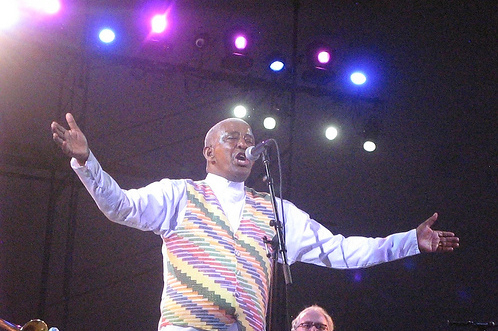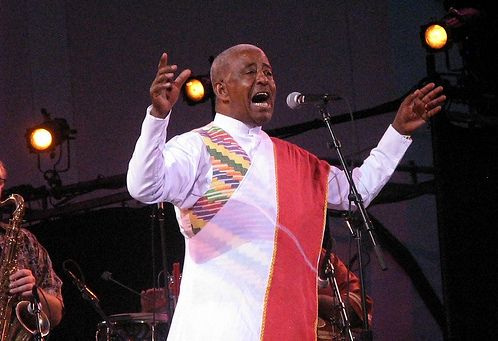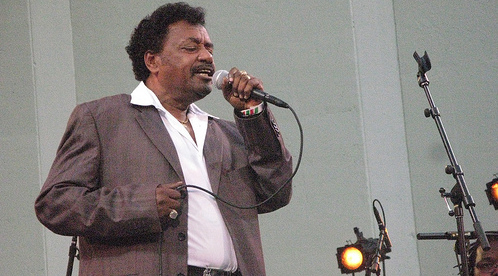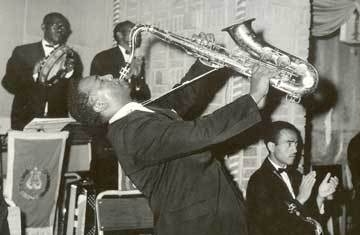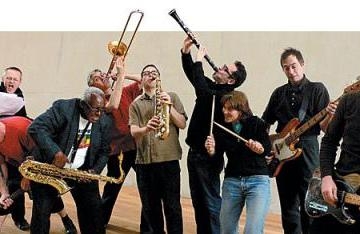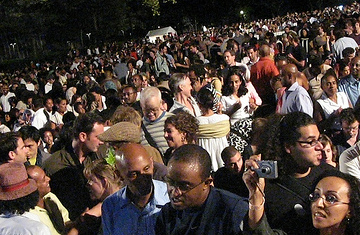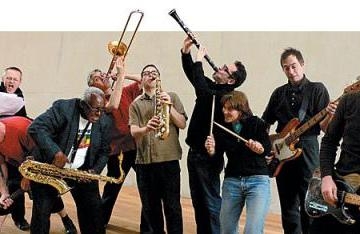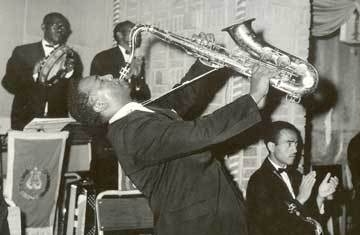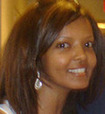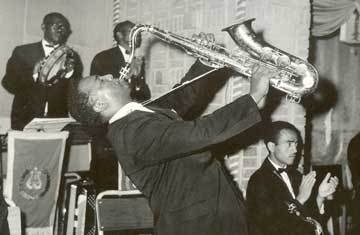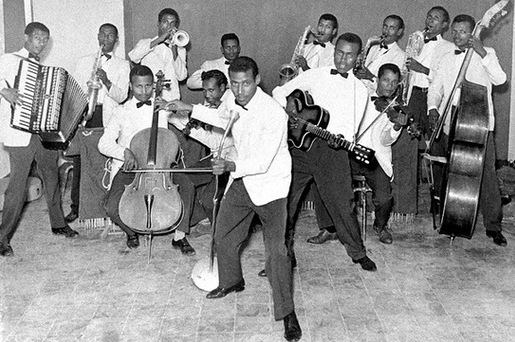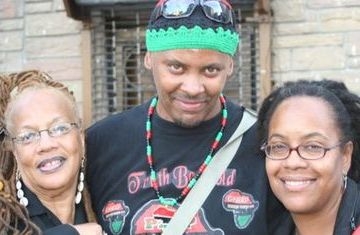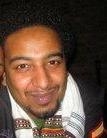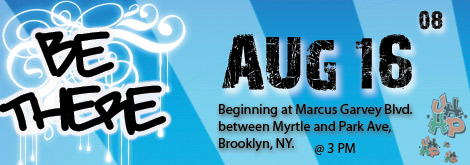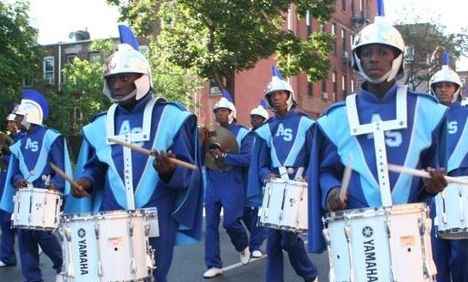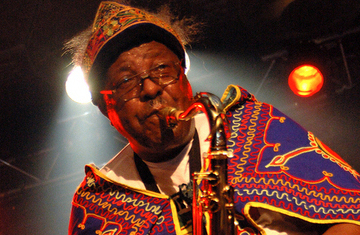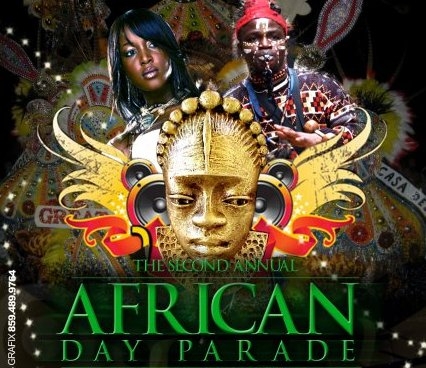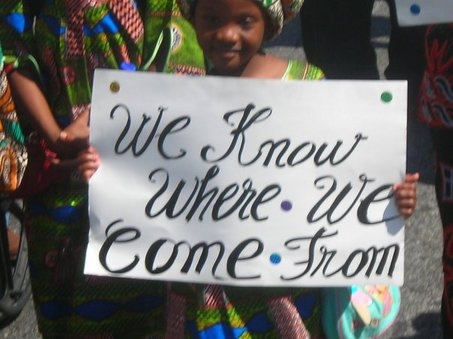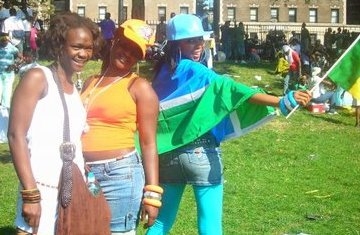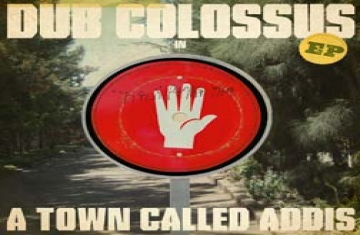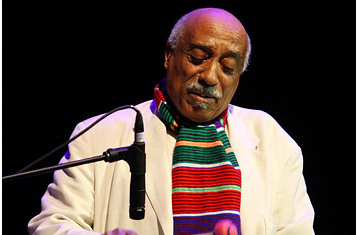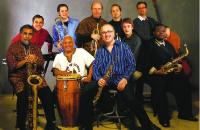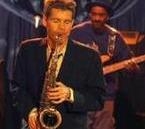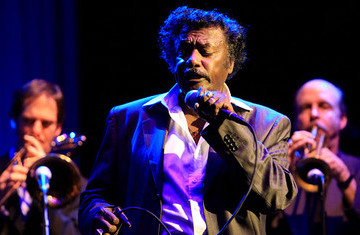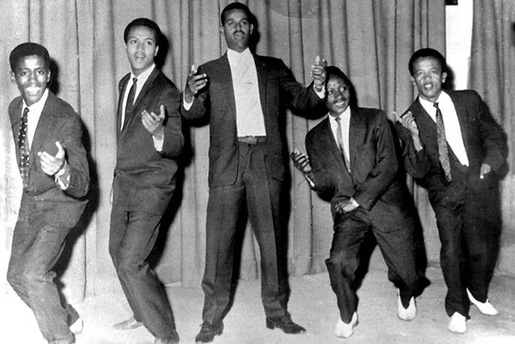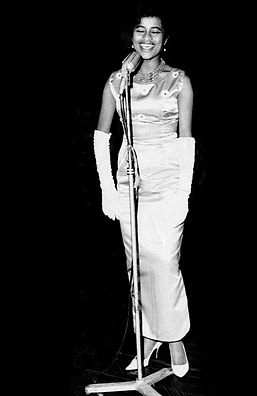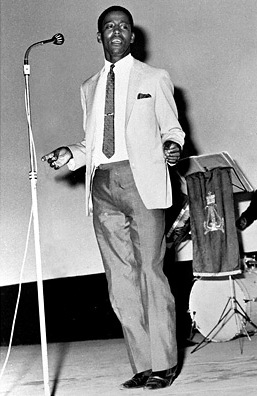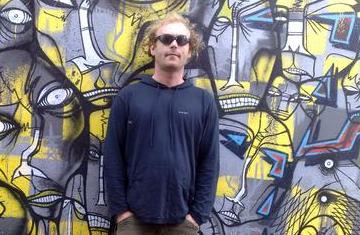 Tadias Magazine spoke with Dan Harper about his new album "Punt Made in Ethiopia" and his work to create cross-cultural conversations through music. (Courtesy photo).
Tadias Magazine spoke with Dan Harper about his new album "Punt Made in Ethiopia" and his work to create cross-cultural conversations through music. (Courtesy photo).
Tadias Magazine
Interview by Tseday Alehegn

Updated: Monday, November 16, 2009
New York (Tadias) – As an aid worker for a British NGO in Ethiopia, Dan Harper (Invisible System) lived and traveled throughout Ethiopia for three years. He also nurtured his first love: music, and built a studio from scratch to produce and collaborate with Ethiopian musicians. Harper describes his Worm Hole studio equipment as something which “can be setup around scarce resources such as in an outhouse with corrugated iron roofing (interesting in the rainy season), carpets and breeze blocks. It is also now constructed in a more solid form in Frome, Somerset whilst maintaining its nomadic and professional feel and look.” Harper co-wrote and sound engineered Dub Colossus’ album “A Town Called Addis” with Nick Page, and most recently came out with his own album “PUNT Made in Ethiopia” (Harper Diabate Records) featuring an incredibly diverse list of musicians, ranging from talent he spotted at a traditional Azmari joint to sessions with singer Tsedenia and the legendary Mahmoud Ahmed. Harper stresses that the collaboration is not trying to imitate how Ethiopians play music. Rather it’s an entirely improvisational recording. Invisible System has played at the Addis Music Festival as well as several live concerts in the U.K. Proceeds from the album are helping to establish a charity focusing on providing resources to artists and musicians in the developing world, an issue which Harper believes is often neglected by international NGOs.
We spoke with Dan about his first album release on Harper Diabete Records and his work to create genuine cross-cultural conversations through music.
Tadias: Can you tell us a bit about yourself? How you ended up living and working in Ethiopia?
Harper: Before I start, I’d like to say it’s really nice to be involved with Ethiopians and Ethiopian culture and music. I have very fond memories of Addis, and I traveled all around the country. I had volunteers all over the place. I’ve been to Jimma, up to the North, I’ve been to the South, Lake Langano, Awasa. It’s been so long now that I’ve even started to forget the names of all the places… Gonder, Mekele. Fantastic country really.
Okay, so I grew up in England. Mother was born in India, raised in New Zealand and she moved to England when she was 18. My dad comes from a working class coal miner and army background. He later became an academic. I grew up in the southwest of England. I always wanted to go to Africa..always fascinated. Even as a kid, when I was 12 I was listening to bands that infused African rhythm and sound. Something always hit the mark for me. A lot has driven me to Africa. Also, I’ve always had a thing about development and the problems of developing countries and the injustice of it all. And that is ingrained from a young age as well. I used to complain when we had three course meals when I was 11 or 12 saying there were people who can’t eat in the world. It’s just been part of me. So that’s me: I love art, I love music. I’m interested in international culture. I love different ways of talking, and eating, and interacting, and different clothes and hairstyles. I think that’s what’s magical about the world.
I’ve always been fascinated with music since the age of 7. I’m obsessed with it I think. I’ve taught myself to play everything. I’ve taught myself to produce, to sound engineer. I’ve built my own studio. I’ve done it without the equipment being bought for me. I’ve had to work hard for it. And I’ve had to build it bit by bit. And I’ve been in constant debt for it, so it’s an absolute love, and passion, and something I can’t stop doing.
When I left school I bought a camp van and I worked and I drove around Europe and down to Turkey with my girlfriend, and had an interest in international development and culture since then. Since seeing people live in cardboard boxes as I drove around. And at university I changed very quickly from studying computing management to studying environmental management, although I probably should have done, music, technology or both. But there you go. Both things come together. I had wanted to work abroad in NGOs.. I was always quite anti-government. I grew up in Thatcher’s government so plenty of reasons to be upset. And I had to volunteer for years..there was no paid work in Environment. There was no way to go to Africa. You had to pay for yourself. I had no money. I was trying to build a studio that was getting me in debt, and eventually I had to go into business. Didn’t enjoy working in business. Had to cut my hair which was awful and wear a suit which was awful – not me at all. And I ended up working for the Institute of Development Studies at Sussex University in quite a basic, boring admin job. I knew it would springboard me overseas and I took a job up in Mali eventually, which I was very lucky to get after a few years work experience. I learned French and worked for a local environmental NGO. I was in the middle of the desert. It was really hard work, hard conditions, teaching kids about environmental issues. And I met my wife out there, and I worked there for four and half years and I have a daughter.
We could afford to get on as a family there so I thought I better try to get a better paying job, as I wanted to stay overseas. I wanted to stay in Africa. And a job with a British NGO came up and I got it and it was in Ethiopia. And unfortunately Ethiopia, I think, has been spoiled by the media and the problems of the famine. Because everyone thinks about famine and dry, desert conditions including me. I was as guilty, because I thought “I’m going from one desert to another.” And it’s not is it? I mean how green, and lush and beautiful is Addis, Jimma and even some places in the North. Not that barren. I’m not going to get into the history and the problems. Those are things for us to discuss another time. Complicated history and reasons. But sure I was out in Ethiopia for three years, and I have a fair idea of what went on. I have a few Ethiopian friends who I’m still in contact with. But that’s how I ended up living and working in Ethiopia. And it was a three year contract. I had a great time with the Ethiopians I work with. I had volunteers out helping government and non-governmental organizations in HIV/AIDS and small business. I didn’t enjoy working for voluntary service agencies – the British organization. I didn’t like their obsessiveness with bureaucracy and paperwork, and they weren’t getting the volunteers out efficiently as it could have been. I didn’t like the attitude of the country directors who were British. I didn’t think that they treated the Ethiopian staff as well. But Ethiopia was great, Addis was great. I had a fantastic circle of friends. I had a great social life. And I was trying to help in every which way I could through the development work, and bringing as many volunteers as I could out to work with people from all over the world. My idea was to create more volunteer positions, and get volunteers out there and make a change. So that’s how I ended up out there with my family.
Tadias: Can you describe the role of music in your life? When did you start producing music?
Harper: God, without music it would be awful. When I’m listening to and playing music that is my ultimate meaning of the world. Work could get boring everyday, you know, doing things that you don’t always want to be doing. [Music is] escapism in a way, but it’s like my religion, it’s like my spiritual being. It’s my way of releasing all the creativity, the need to make colorful and creative things and sounds, and this is my way of doing it. And without it I would be bored and grey and depressed. There’s more to life than writing paper, for me anyhow. I think everyone’s different. I started producing music when I was about seventeen, and I bought and taught myself how to play an electric guitar, and started playing in a band. I borrowed a friend’s four-track tape recorder and started overlaying guitars like that, and you know it’s gone on ever since. Teaching myself the guitar, drums, bass, keyboard, synthesis, sound engineering production, using the studio.. the full works. It gradually increases. I’ve never had enough time for it. I’ve always worked full time. It always been get in, fighting fatigue from work drinking coffee to write and produce music. And it’s difficult because you never have enough energy, and at the weekend you’ve gotta clean your house, and well now deal with the kid as well, and try to have a social life so. Yeah it’s been going on since I was 17. I am now 37. I should have had an album out years ago. But there you go.
Tadias: And the artwork on your CD cover?
Harper: The art work was a mixture of myself and Bos / Warp (Paul Boswell) a graffiti based artists in Frome who is well known for his work in Bristol, and Moussa from Addis. The painting of the musicians was created by Moussa to say “thank you” to me. Moussa was an orphan and he was lucky enough to make it to study music at Addis University. He is a lovely guy and I sorted him out with a job teaching my neighbour’s child the guitar. My neighbour was English and she had married an Ethiopian in Addis. We forwarded him some salary and when I was in the UK I purchased him an electric guitar that my neighbour brought back to Addis for him. He was so happy he made me that painting. I changed it color and vibrancy-wise to match the feel of the album, but the original is also wonderful and will be published perhaps on the next album.
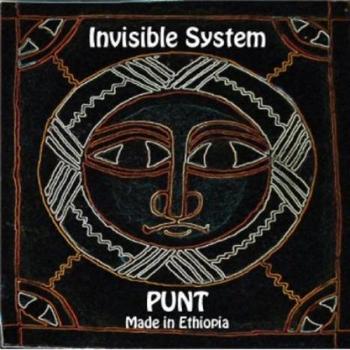
Punt, Made in Ethiopia album cover.
I love Bos’s humour, it always makes me laugh but with the album, the faces he had painted by chance reminded me of the Ethiopian painted faces you often see with big eyes. I liked the connection due to the fusion nature of the album covering styles of Ethiopian, Pop, Dance, Trance, Rock, Dub, Reggae, Drum and Bass, Punk and Grunge. It all fits! And the other painting of the chap/creature in the suit and tie reminded me of how it feels to be an artist trapped in the office in a suit and tie during the day! Personal! I have always combined aid work, which includes offices and suits and ties with my art.
Bos also plays bass on one track on the album and plays live with me sometimes with the UK Invisible System setup, which has a Jamaican born UK based reggae singer doing the vocals. I am also in another more punk/psycehdelic/jam based band with Bos on bass, me on guitar and Merv Pepler from the Ozrics Tentacles and Eat Static on drums. We have not decided on a name yet but some suggestions have arisen…Flaps, The Mutes and The Coalminers are three!
Tadias: Tell us a bit more about the music scene in Addis and your collaboration with various local and internationally known Ethiopian musicians.
Harper: When I first got to Addis, I found there was a lot of buzz where people would sing in front of electronic keyboards, with electronic drums, which wasn’t quite my kind of thing. And then I found the Azmari bets, which I loved more. The traditional..seeing the masinko, singing and clapping and dancing. I bumped into most of the people that I worked with within odd clubs around Addis, say kind of at two in the morning. That’s where I found Nati on the album, that’s where I found Desta. Just people whose voices I liked. I approached them after. Sometimes I needed translating because my Amharic wasn’t good enough – their English wasn’t good enough just to communicate. I often have my music on an MP3 player, and I’d put headphones on them and say “do you want to come and jam?” And that’s how a lot of it kicked off actually. Tsedenia was introduced to me via my wife’s hairdresser. My wife was having her hair done down the road and saying that I was recording in the studio at home making music. Mahmoud was a chance because I sold a mike to someone who turned out to be a friend to Mahmoud’s saxophone player who came, walked into the studio and loved what I was doing. He told Mahmoud that he has to come down and listen, and Mahmoud came and listened and loved it as well and just asked to be a part of it, which was fantastic. I knew who he was but hadn’t heard that much of his music to be honest. I have cracking cassette of Mahmoud that I bought out in Jimma. A really old one. I love it. I love the old rough sound of it..the scales and just things that wouldn’t come to the Western mind.
We grow up in such different cultures that even the tonalities sound different to us and bring up different emotions – it’s what makes the world go round. I loved working with people over there and I never tried to emulate what the Ethiopians were doing when they played. I think Nick tried to do that with Dub Colossus. But I’d invited everyone over and people were quite reserved. They’d say “What do you want me to play? How do you want me to play?” And I’d just say “Do what you want. Do what you feel.” I played them some music that I put together to improvise what you feel. “Don’t worry about what you think I want.” And that’s the magic of it for me. It all comes from each other’s soul. That nothing’s pre-arranged. It’s just pure music from our hearts and soul and that’s what it’s about at the end of the day. To put those two things together that come from the different languages and culture and feelings for me is what it’s all about.
Tadias: Can you explain the name that you chose (Punt, Made in Ethiopia) for your current CD?
Harper: I chose PUNT because Punt was the name given to that area of land that they believe was Ethiopia and what the Egyptians used to call Punt. The magic land. Where people would come back with artifacts, not just animals such as giraffes or lions but also myrrh and other kinds of incense that were biblical and were apparently from this magical land called Punt. I love the history of Ethiopia and England, and the kind of pre-commercialism culture and the spiritual culture. I like the kind of druids and animists that lived in England and Africa before. I’m sure it was hard in other ways. I do like modern life as well, but to go back to that kind of working Azmari musicians and the Masinko and the kind of traditional human element of it, and the magical way the music that we create was done. It all makes sense to me to call it Punt. So that’s where Punt came from. Looking backwards but moving forward.
PUNT is an album that was improvised, from scratch – all instruments and vocals. We are not into using Ethiopian (or Malian) samples or trying to quickly learn and imitate Ethiopian musicians who have their sounds, modes, scales, feelings and soul from their culture and country else we would be the neo-colonialists. We are into sharing, learning and exchange over time. The music is based on real life experience not from reading. It is played from the heart and soul of everyone involved. Their own interpretation thus tapping the ebbs and flows of our lives.
Tadias: What are your favorite memories of Ethiopia? Africa?
Harper: Wow, you just asked a huge question. My favorite memories of Ethiopia and Africa. They’re so many. I miss going out and eating injera and hot food. And seeing all those beautiful and incredible faces all around. And I miss going to Elsie’s bar – the kind of bohemian culture. And I miss my friends and I miss traveling around. I miss the hot spring pools like Wondogenet. I miss the more openness of a culture of people that are out and about more. It’s cold here. We all live in tiny little houses. It’s cramped in and tiny gardens in England. I’m not saying people don’t in Ethiopia and Africa. You know it depends where you live, but I miss the fact that people are out and walking more, and talking more. And I miss that I can push my daughter down the road and people would kiss her and pick her up and I won’t be scared. I won’t think there’s a problem with a child molester. And I can go to a restaurant and she’ll be off having a tour and the waitresses would take her off to the kitchen and the lack of the excessive rules and regulations we have here in driving and living and existing. I do see Ethiopia as quite bureaucratic also and I suppose especially in Mali I miss the slight element of chaos.
When I went back to play at the Addis Music Festival last year, and we were in the car and I just realized that all the cars were worming their way through a massive non-road of road. I miss all that. I hate all these straight lines and everything here. So there are so many things. There really are so many things. And I miss being in a foreign culture. It’s boring being in England all the time. Everything gets a bit grey and even the language and clothes and too many people are in mono-culture. I like being dropped in what appears to me a more exotic place because I don’t come from there. If someone came from Ethiopia and they were here for three years it would be exotic for them. I got married and had a kid so there are other good memories and I’d like my daughter to keep coming back to Africa. She loves Ethiopia. She used to understand Amharic and she was only three years old when we left and unfortunately she’s forgotten that now. So there are so many [memories] I couldn’t even put them down so I’ll move on.
Tadias: What are the highs and lows of independent music production?
Harper: The highs are: you can create what you want, when you want it, how you want it. You don’t have to argue with someone that a song should sound differently or needs to be more commercial or what order they run on the CD or what art goes on the CD. It’s a great freedom. The need to be an artist for me is to have the freedom of expression, whereas at work you have to curtail how you do things and what you write and how you present yourself. Art for me is about being you, being genuinely you, and doing it independently with your own studio, label and your friends and musicians around you..that you have a common desire together. And it’s fantastic. And also feeling and creating something off your own back..that you had a vision that became a reality and developed into something real.
Now the downsides of it are, well, money because I don’t have any. I’ve had no money to back this and it’s done on credit. There’s no money for getting visas and passports to bring Ethiopians over to play. You know it’d have to be backed by someone. The promotion is really difficult, because I’ve got no one to pay to do the PR. So on top of a full-time job and a family and trying to finish CDs and write more music, you’re trying to get your CD out there and contact people and journalists and send them copies – it’s endless. It goes on an on. It’s fantastic, it’s nice to be able to do it but I’m constantly tired, obviously. So you haven’t got any help is what I’m trying to say. And you haven’t got any resources. And the distribution is quite tricky as well even, because unless you’ve got a lot of money to pay a distribution company that’s hard as well as organizing gigs.
If you are signed to a contract with a major label you can be able to say “okay I can take two years off work” because I guaranteed that income. But I wouldn’t want it to have been any other way. I’ve loved the way it has happened. You can get professional sounds with your studio at home, the only problem is space. Sometimes you can work as loud as you need to, because you’re disturbing your kid’s sleep. We’ve got a tiny house here and my garage is my live room. It would be nice to have more space. When I worked in Peter Gabriel’s studio with Dub Colossus I could get the same sound here. I don’t think you need that expensive equipment. You need good equipment but not that expensive. But the space was nice.
I wouldn’t mind one day for someone to say to me “we’ll give you this much money” so you can concentrate on it properly for a year or two, and I wouldn’t mind some help getting Ethiopians over here to play with me and touring the world of course. It would be absolutely amazing.
Tadias: Anything else that you’d like to tell Tadias readers?
Harper: I just want to say that I loved being in Ethiopia and I loved going back to play at the Addis Music Festival, and I know I’ll go back again and I can’t wait to go back again. My daughter so wants to go back, because she remembers it and we have videos of her being there. And I really hope to get to America someday. I’ve never been to America and I’d love to play a concert with some Ethiopians. It would be wild. It would be fantastic. I really hope that you get to see us play live. I don’t know how it’s gonna happen but I hope. And I hope you all enjoy the album. I know Ethiopia may be different once you’ve been out but it’s a very strong country and it’s very proud, which I think is great. It’s never been colonized and Amharic is still the first language. But this album could be quite a shift in style and way of listening and thinking. I know that they don’t particularly like Dub Colossus over there yet. Tsedenia says they just kind of go “oh yeah it’s interesting,” but they prefer the traditional, but I’ve had fantastic feedback from people in Addis actually for the album which thrilled me because you’re always worried when you’re not fluent in Amharic. You think you might have chopped a sentence at a bad point because it sounds good to you, but if you’re not sure what they’re saying you might have ended it at the wrong place. I just hope you guys get something out of it and enjoy it and please buy it. Don’t pirate it because we’re setting up a charity here and it can help us with good hard work. Real work. And I want to keep this growing so please don’t pirate it. That’s the only other thing that I’d like to say. And get in touch. I’d love to hear from you all. Give me your thoughts. I miss speaking to you all out there. Thanks for the interview. Take care.
Tadias: Thank you Dan! We enjoy your album and look forward to seeing you in concert in North America sometime.
Dan Harper can reached at Dan@harperdiabate.com. Harper Diabate, 1 River Walk, Frome, Somerset, BA11 5HU: myspace, facebook.
About the Author:
Tseday Alehegn is the Editor-in-Chief of Tadias Magazine.
About the Album:
PUNT (Made in Ethiopia) by Invisible System
Invisible System present a 12 track fusion album of Ethiopian, Dub, Dance, Rock, Drum & Bass, Psychedelia, Trance, Electronica & live music. Traditional vocals / instruments meet the modern, electronic and brass. Live Europeans meet live Ethiopians. Our guests include:
Mahmoud Ahmed & Bahta Gebrehiwot (Ethiopiques)
Hilaire Chabby (Baba Maal)
Justin Adams (Robert Plant & Strange Sensation, ex Jah Wobble’s Invaders)
Tsedenia, Mimi, Tarmeg & Sami (now signed to Realworld Records)
Joie Hinton (ex-Eat Static & Ozric Tentacles / Here and Now / IGV)
Martin Cradick (Baka Beyond/ex-Outback)
Captain Sensible (The Damned)
Ed Wynne (Ozric Tentacles / Noden Inctus)
Simon Hinkler (ex-The Mission)
Dubulah (ex-Transglobal Underground, Temple of Sound, Natasha Atlas etc)
Perch (Zion Train)
Juldeh (Justin Adams, Realworld etc)
Elmer Thudd (ex-Loop Guru)
Gary Woodhouse (The Rhythmites)
Bos (ex-Junk Waffle and Warp Graf/Eat Static Artist)
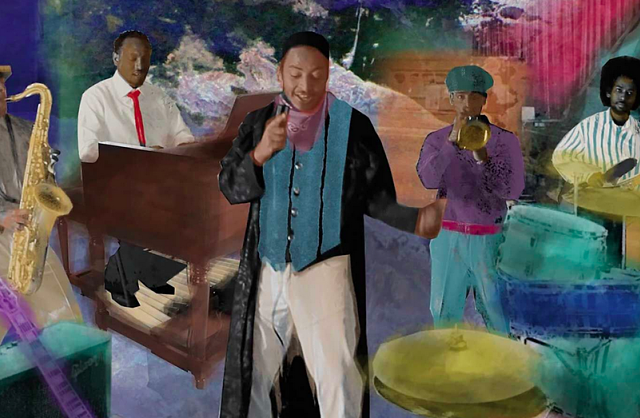 The new documentary film, Éthiopiques: Revolt of the Soul, will screen at Amherst Cinema in Amherst, Massachusetts on July 17, 2019. (Image: IDFA)
The new documentary film, Éthiopiques: Revolt of the Soul, will screen at Amherst Cinema in Amherst, Massachusetts on July 17, 2019. (Image: IDFA)





